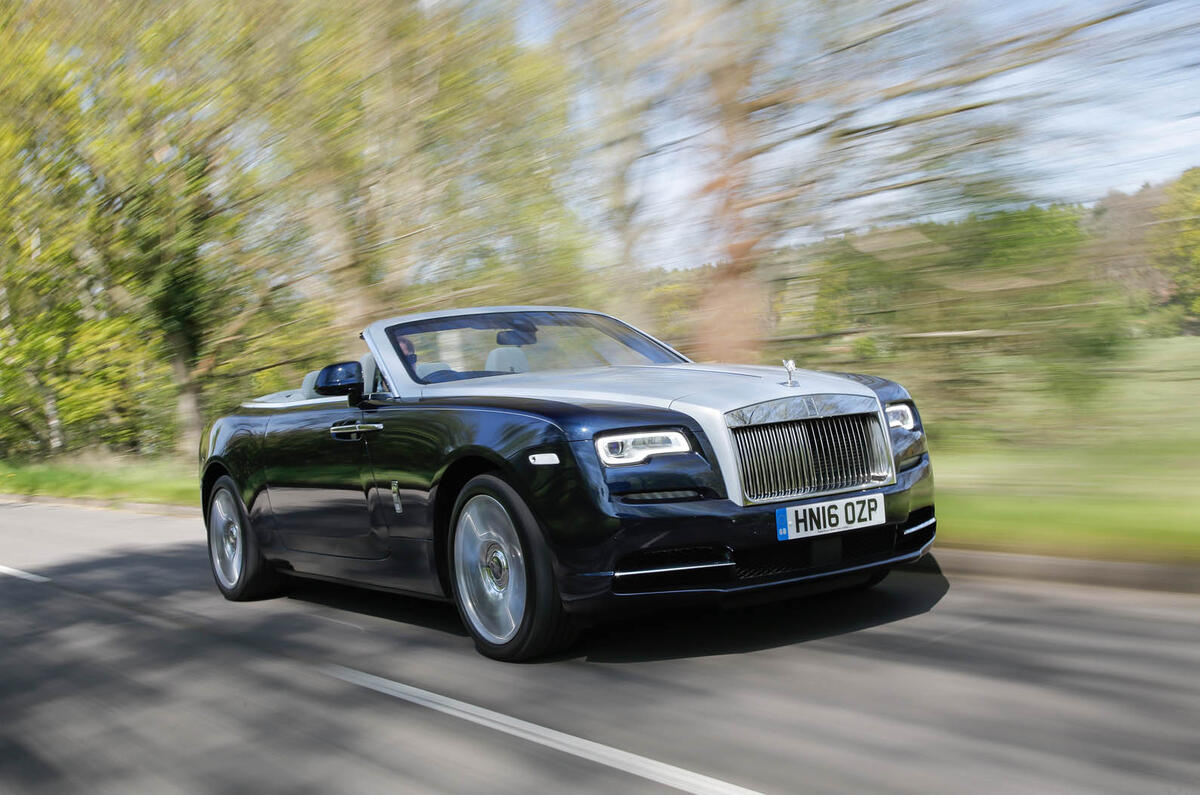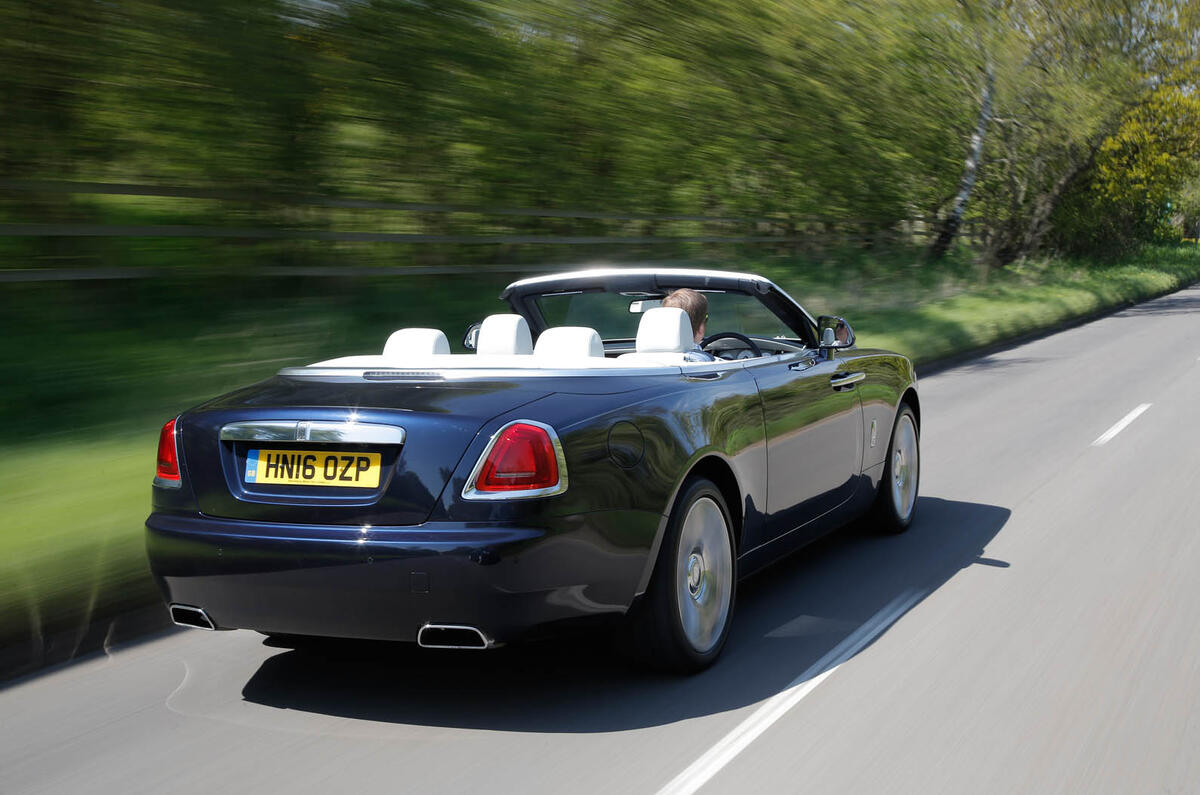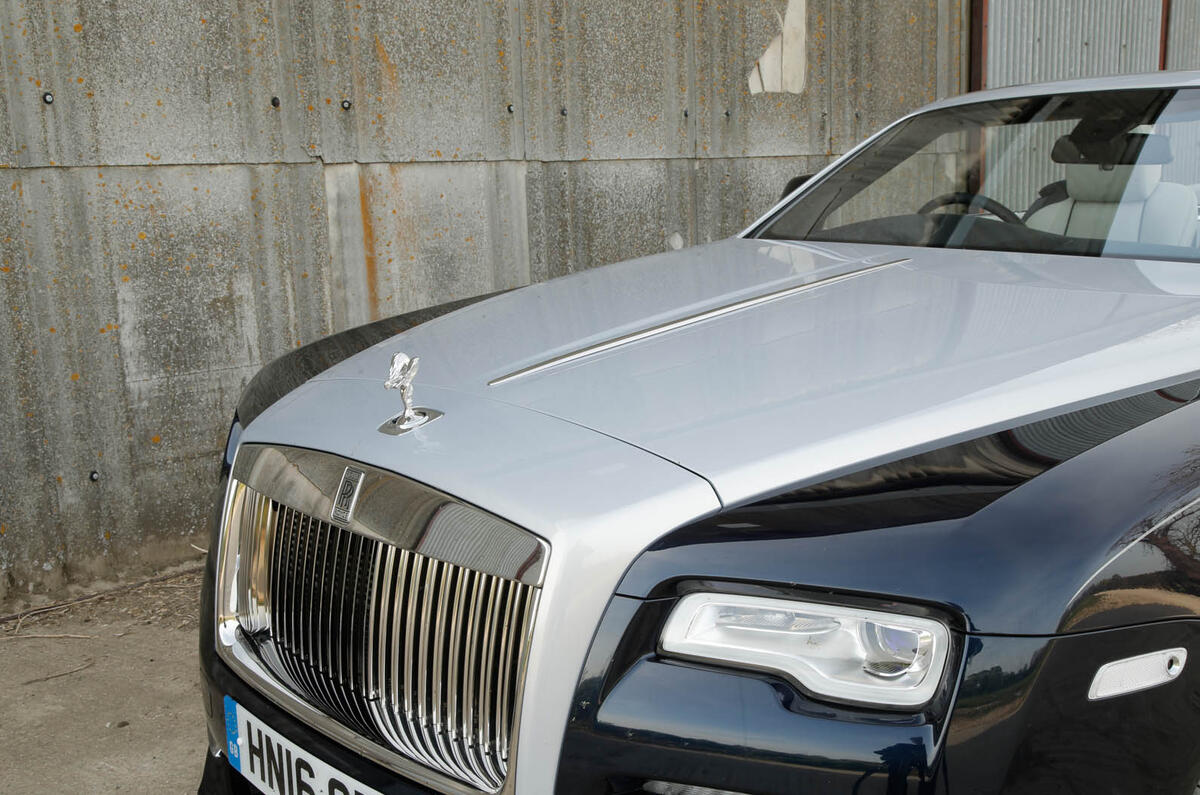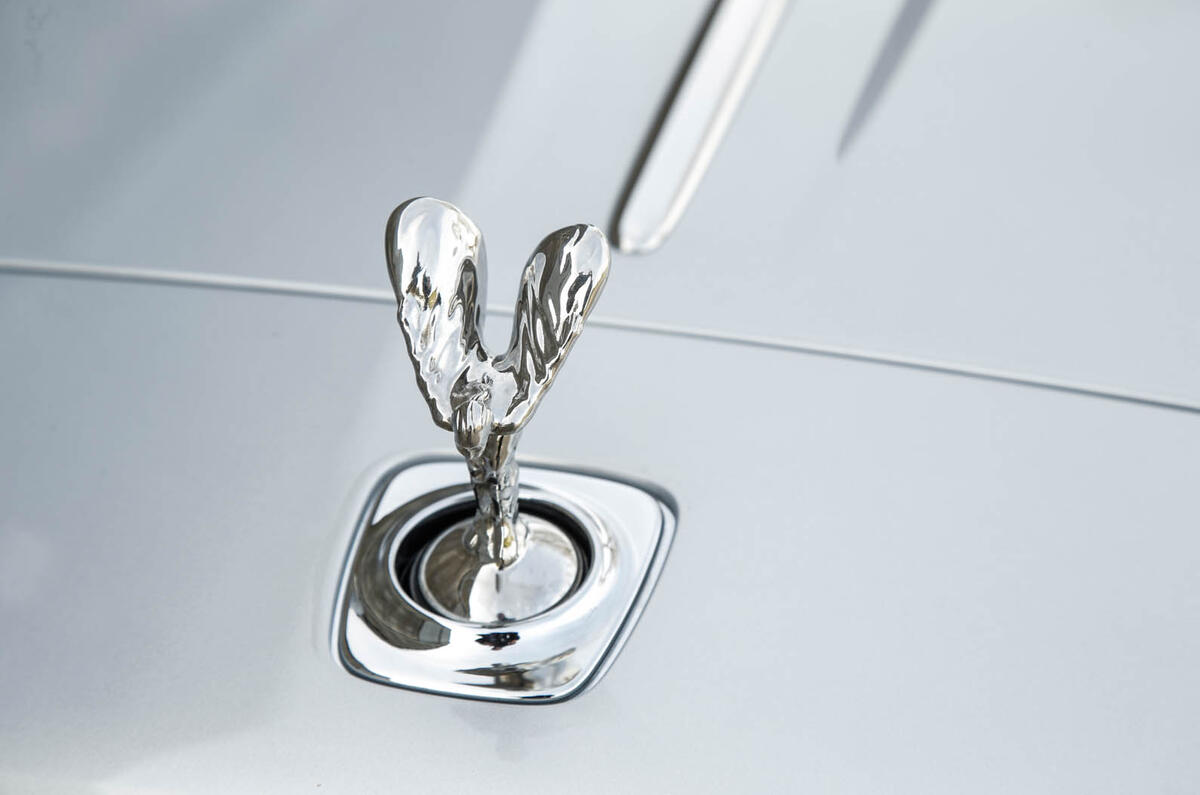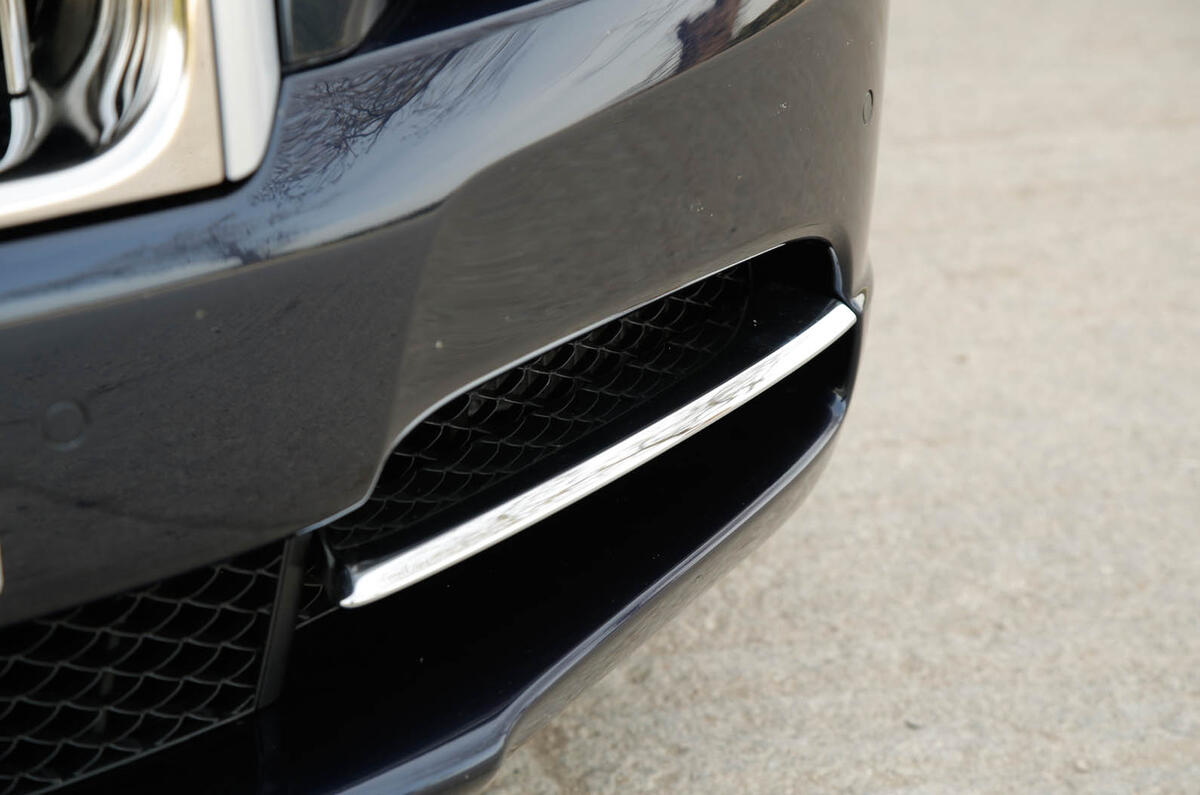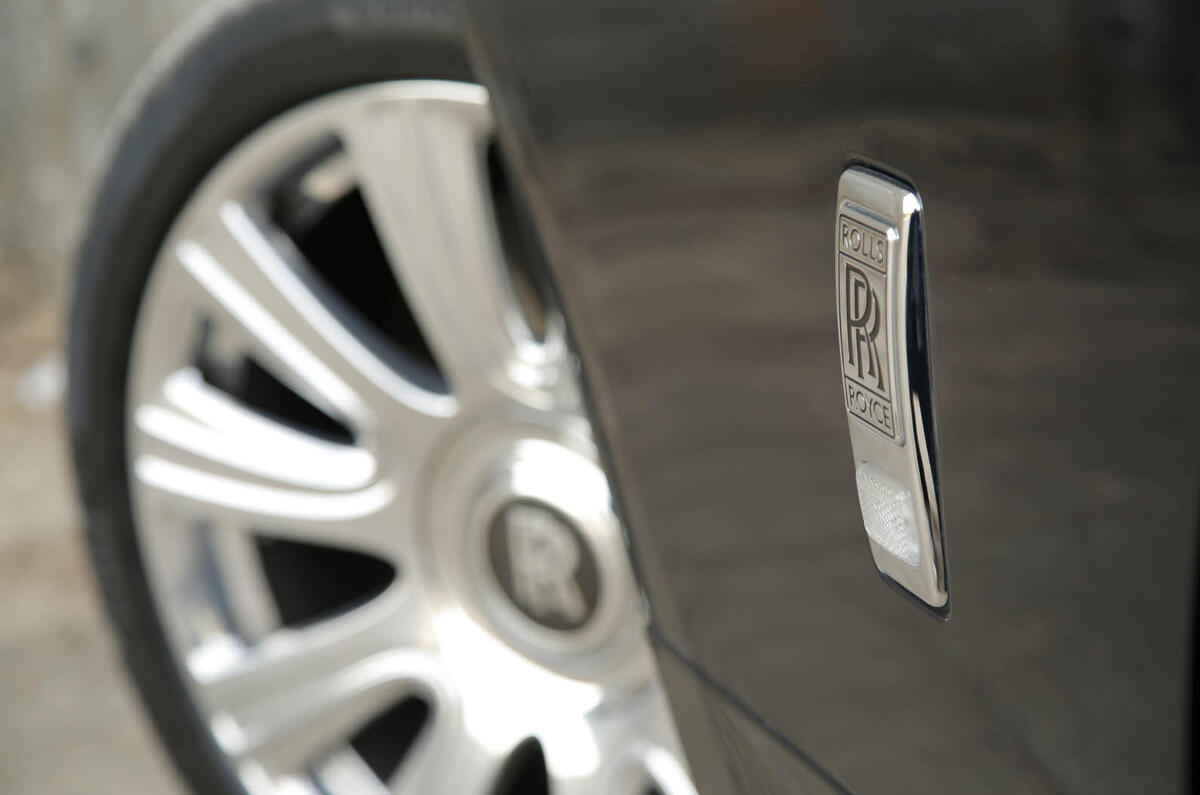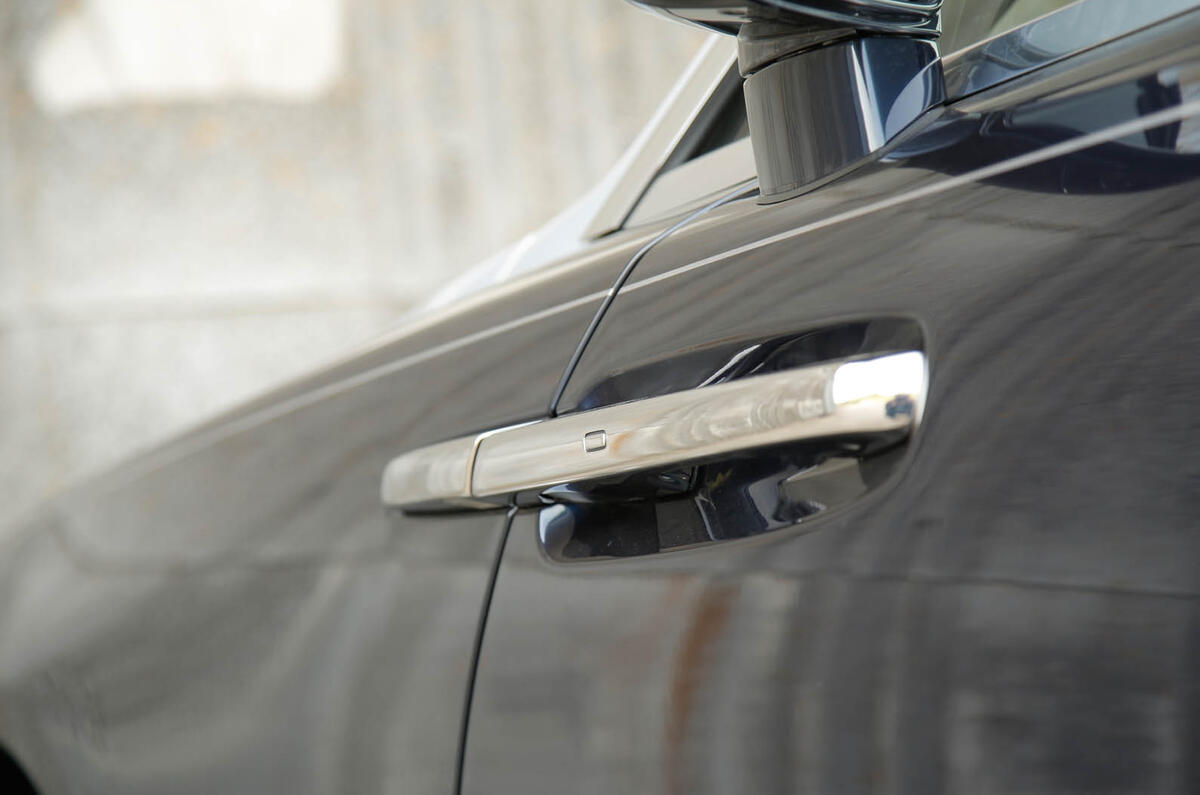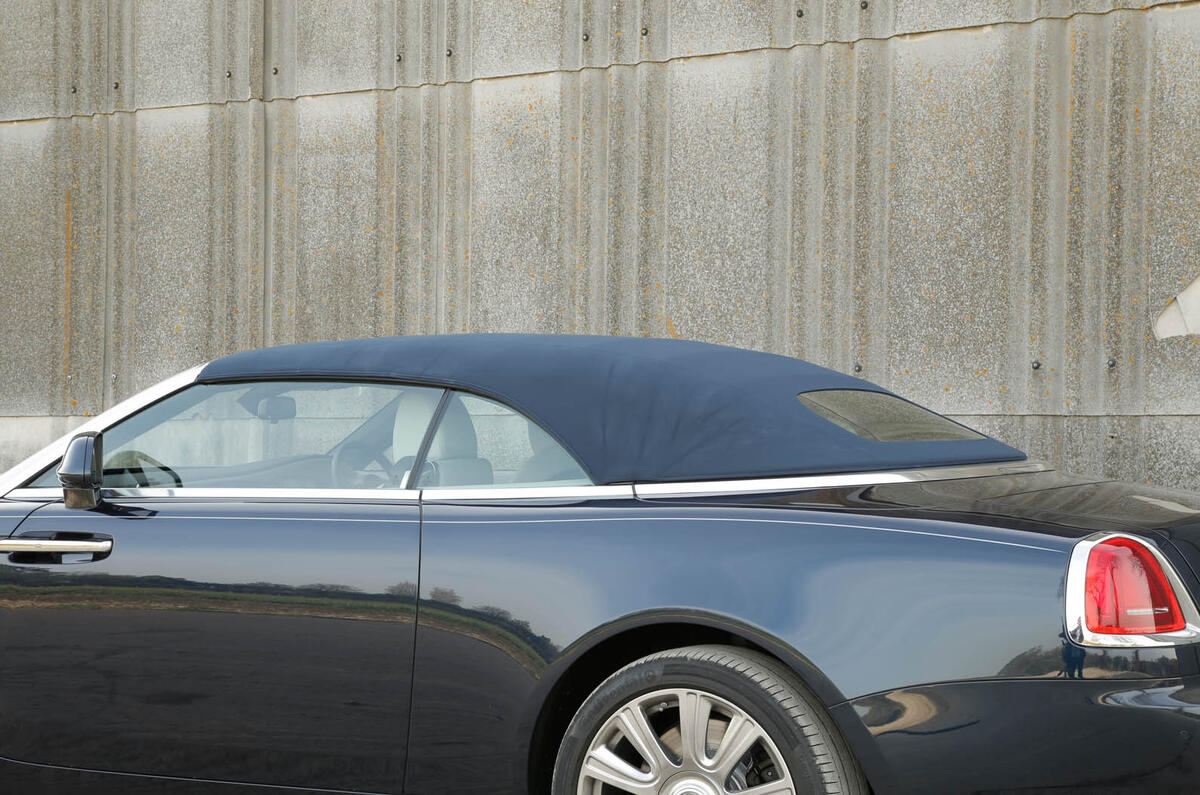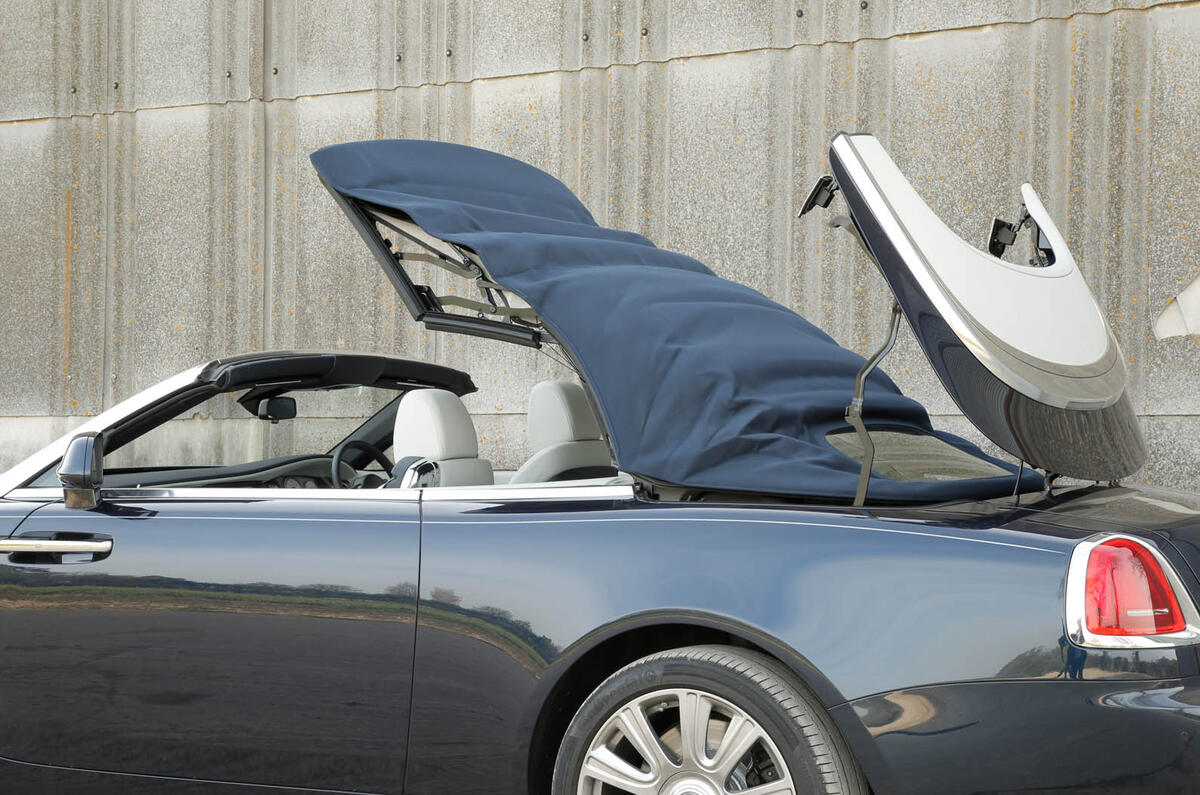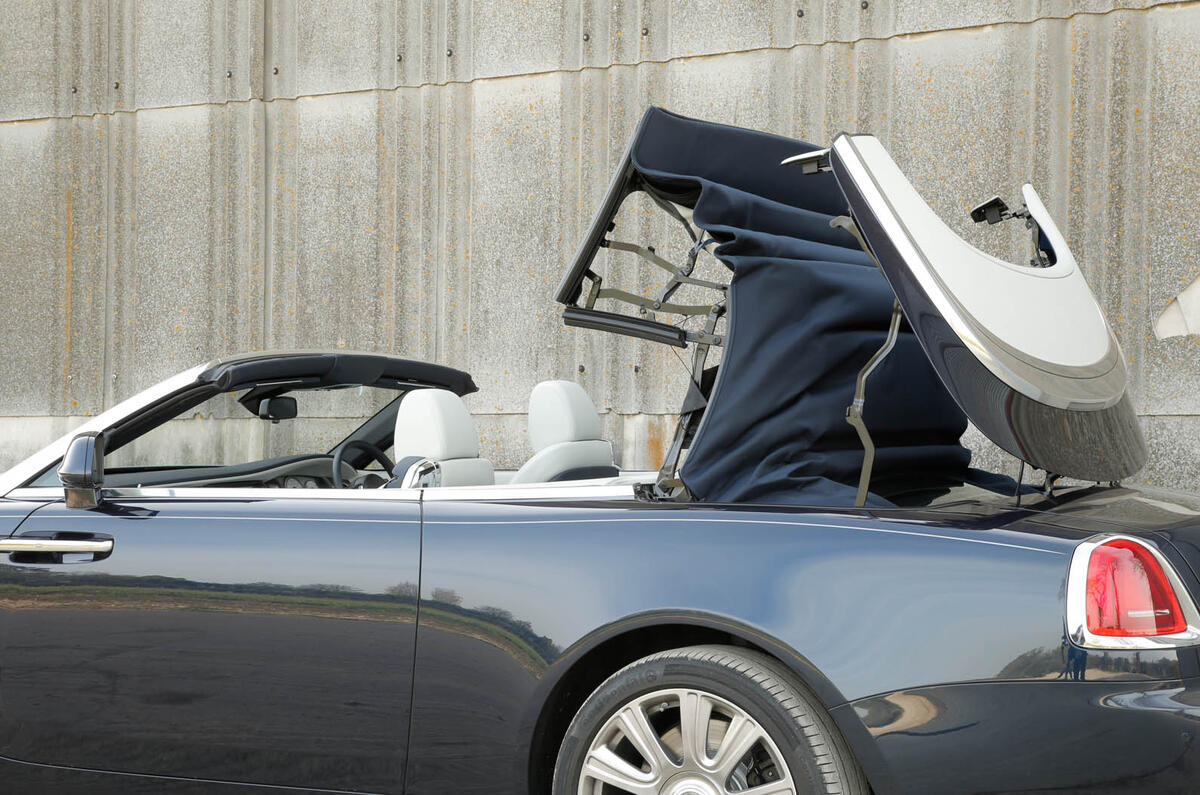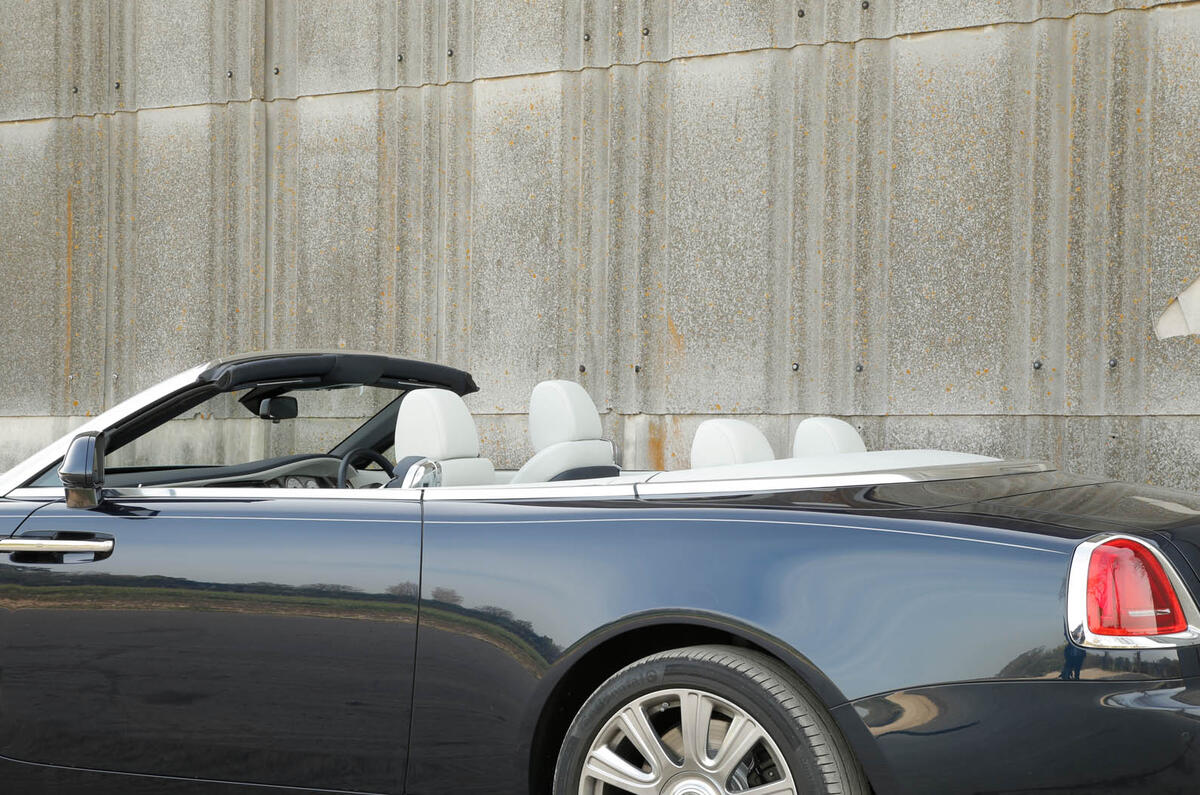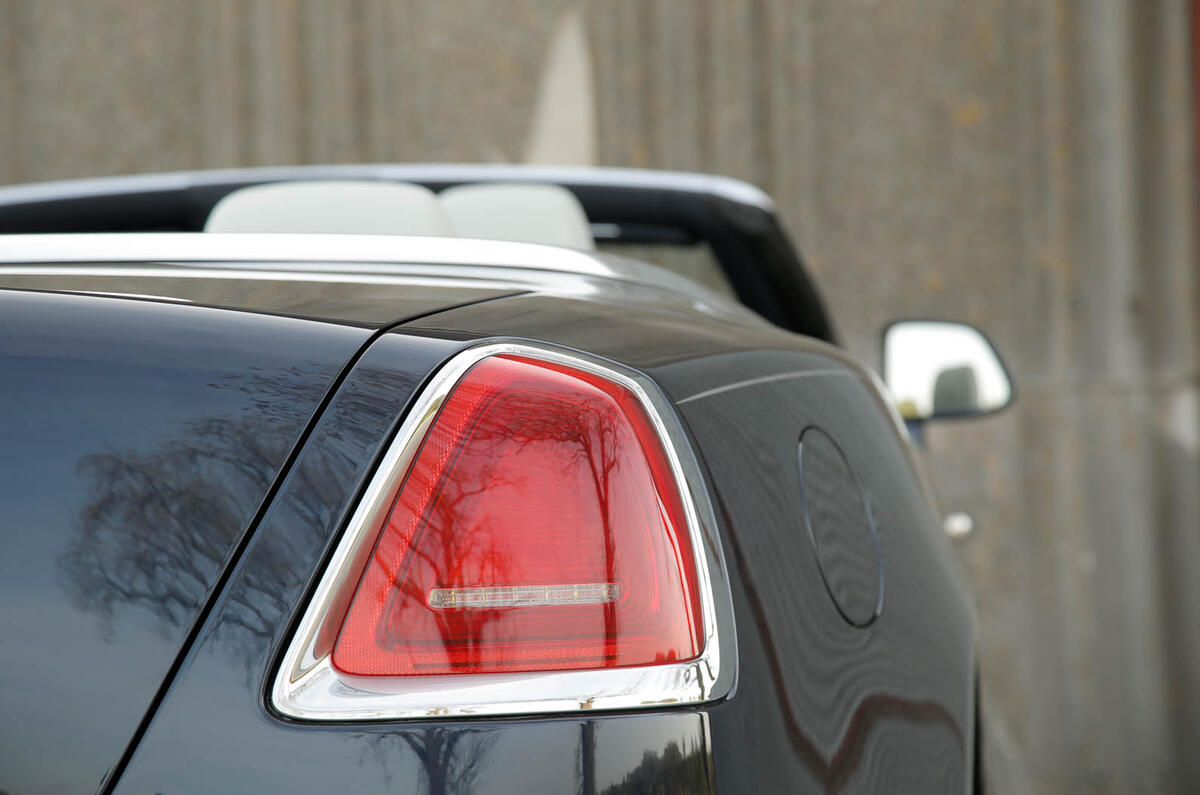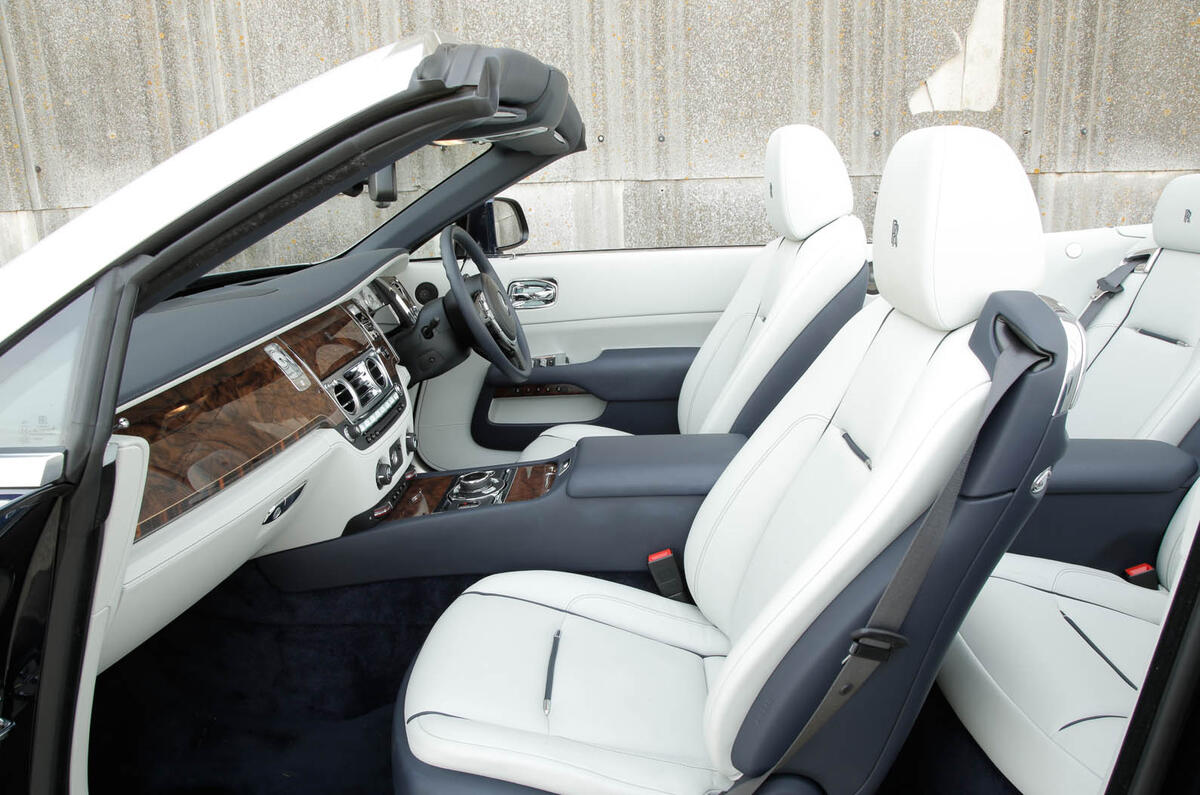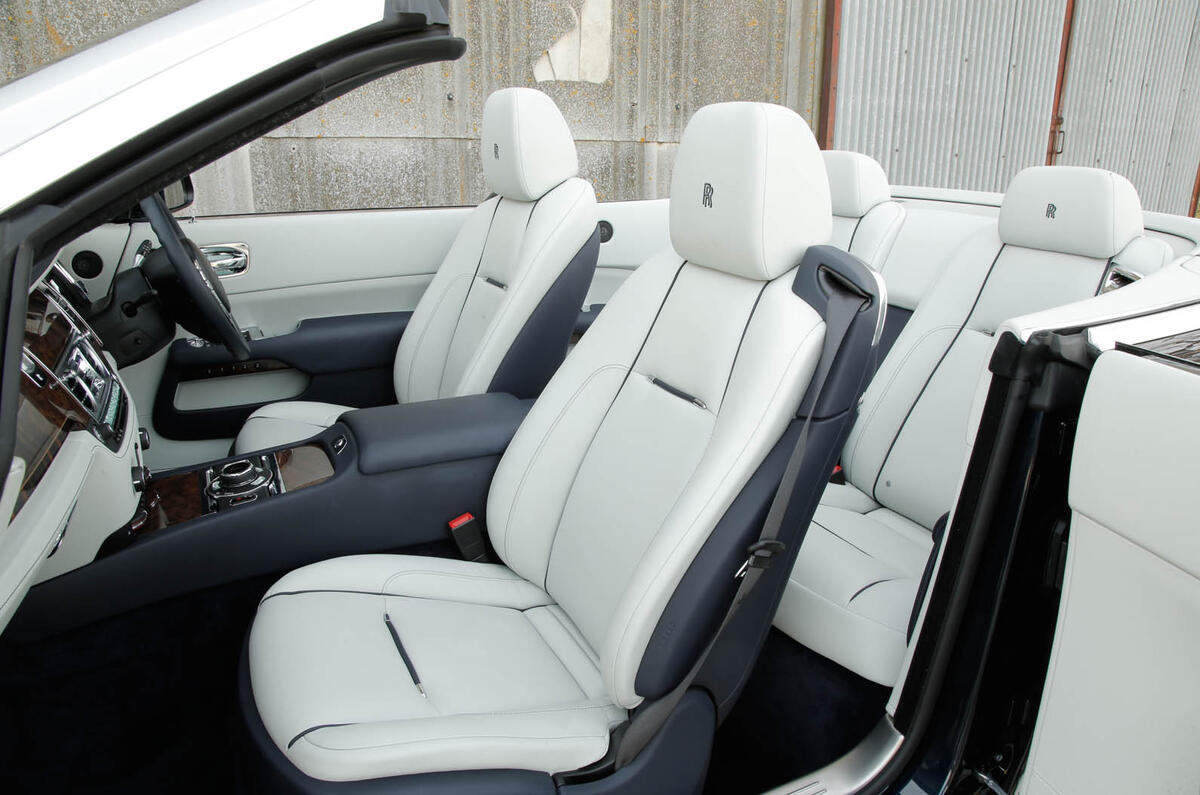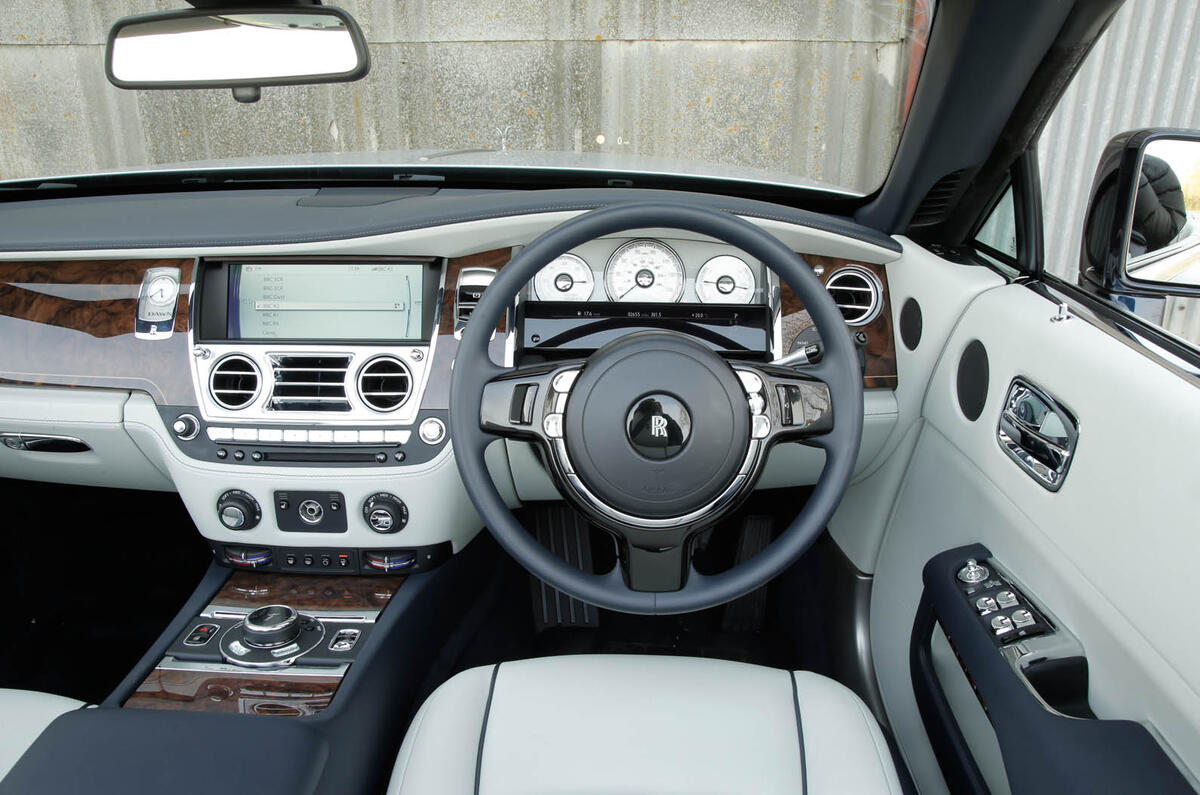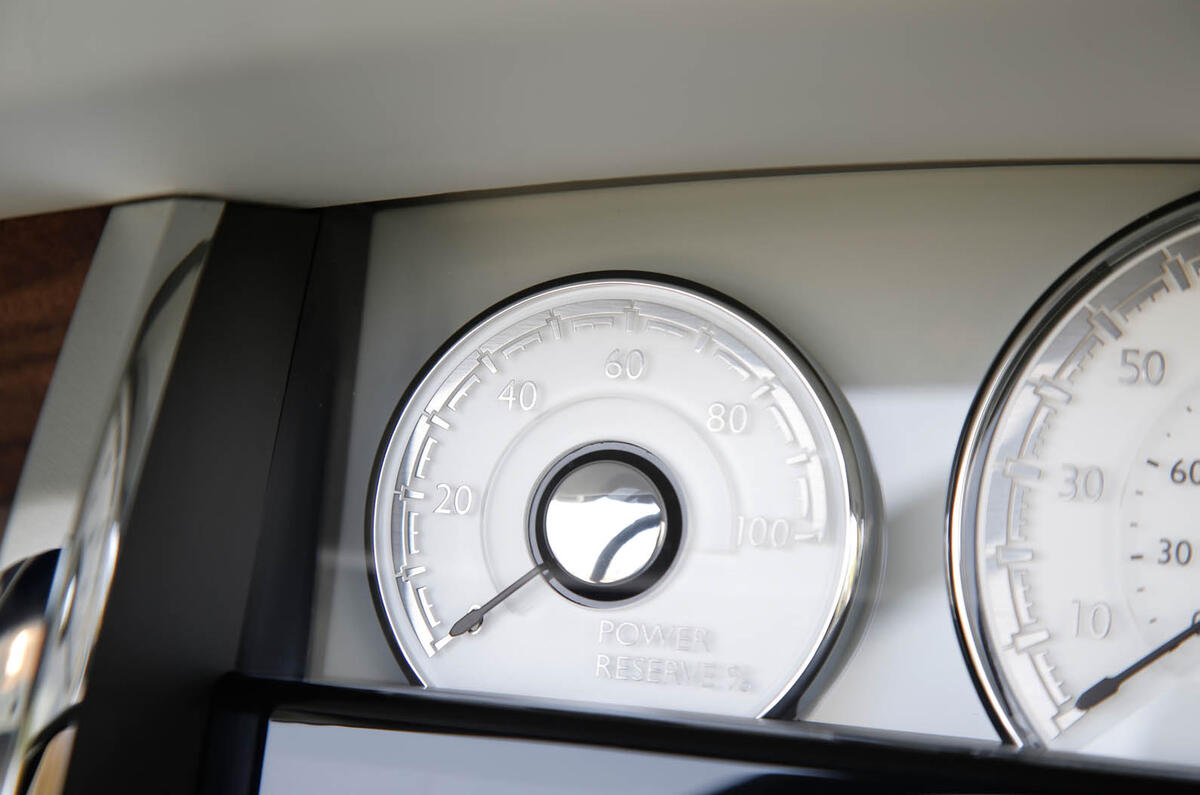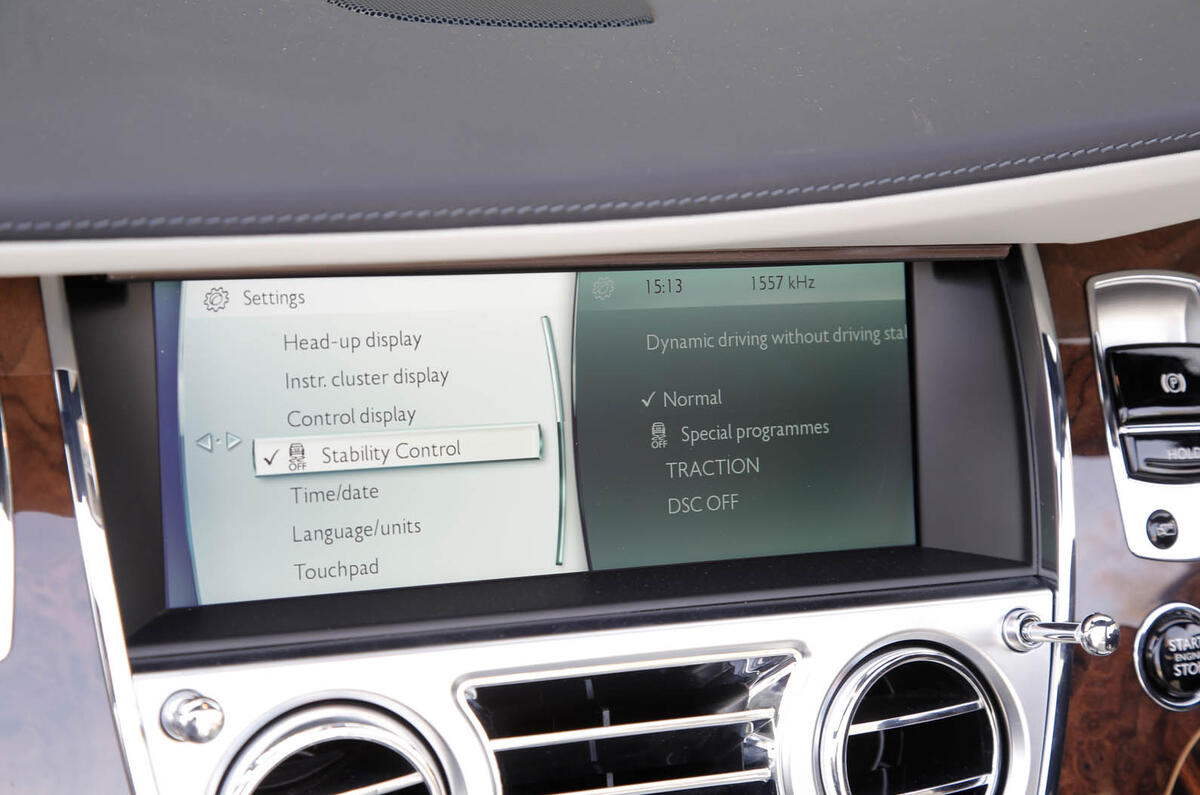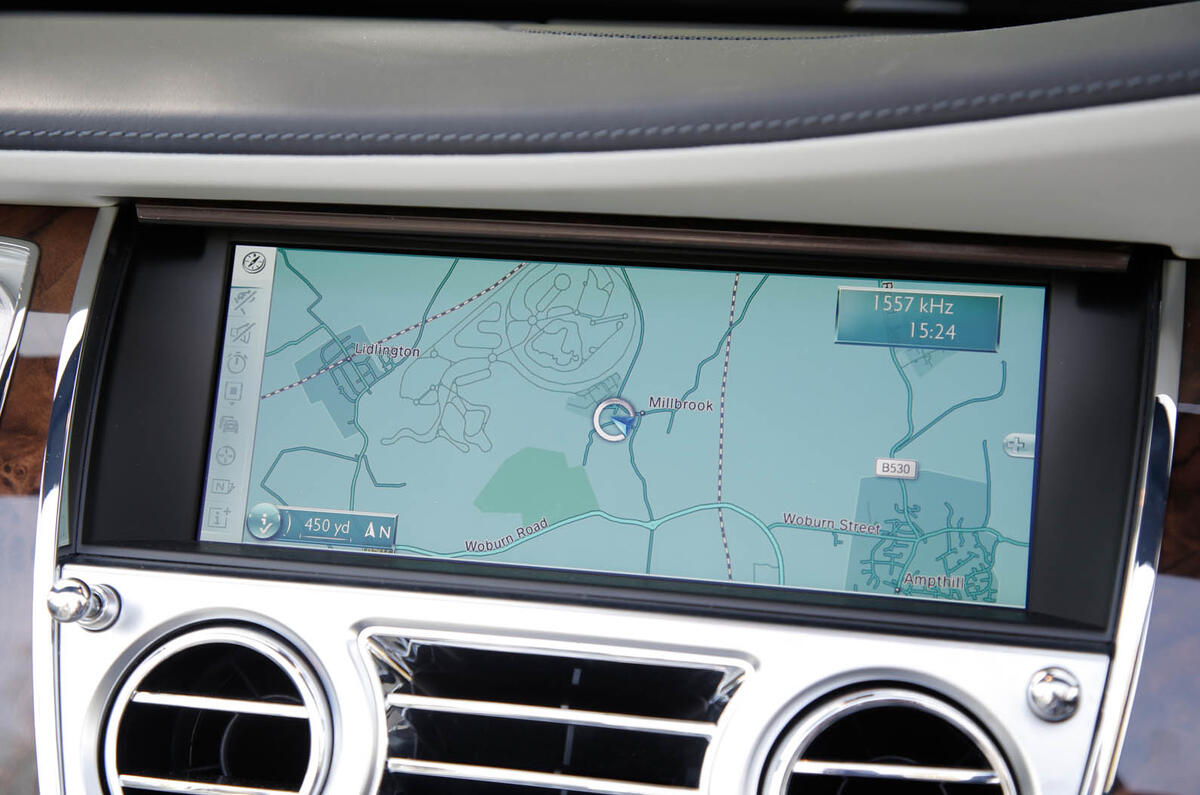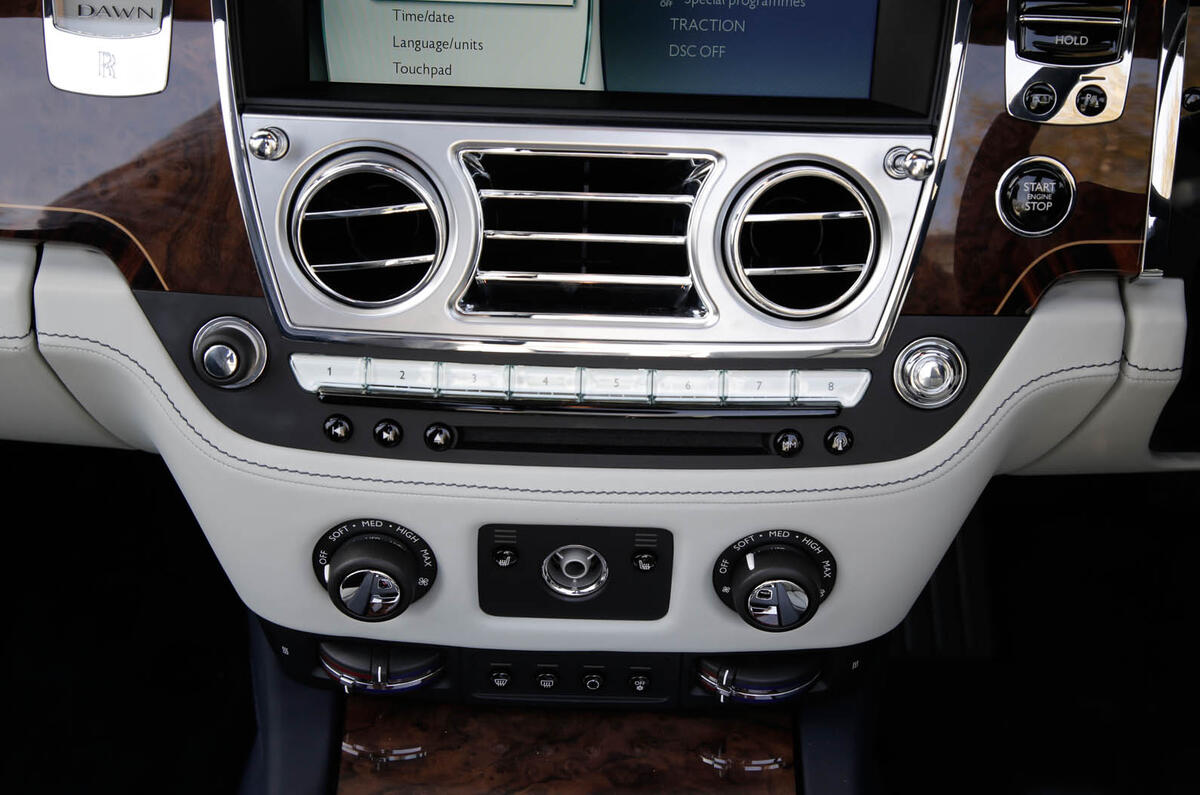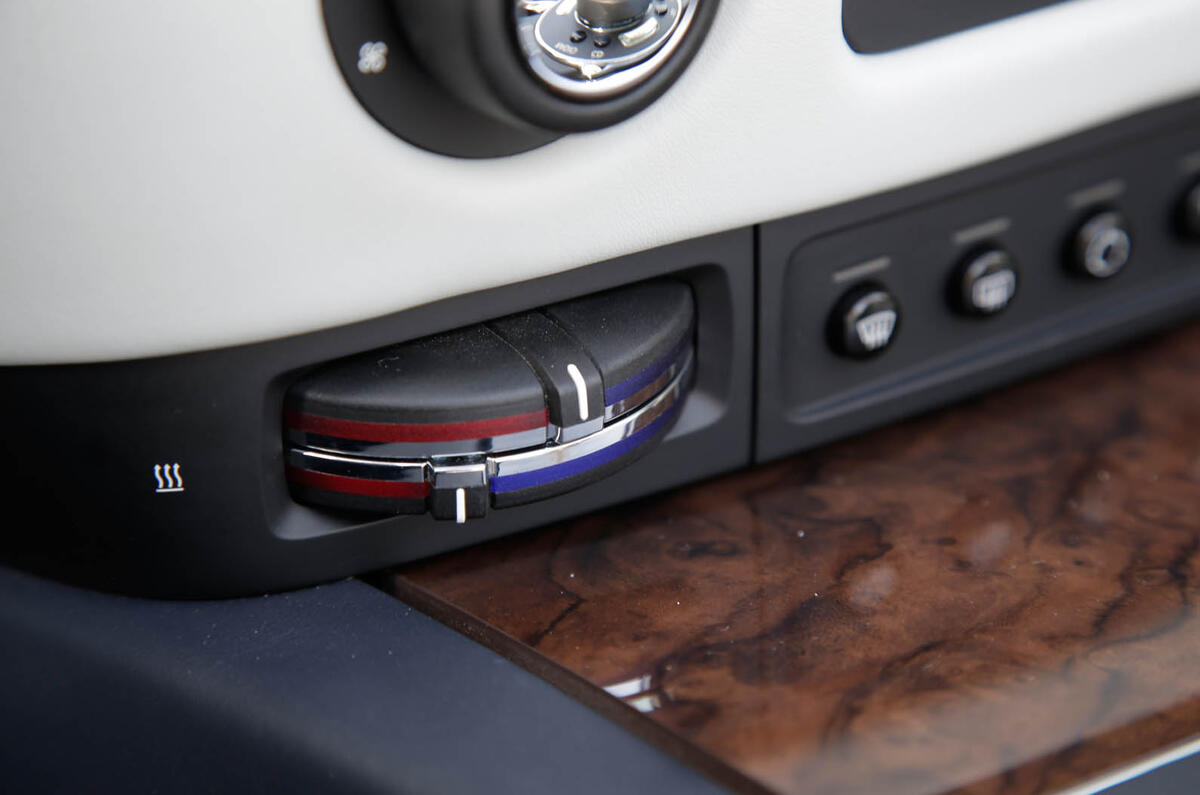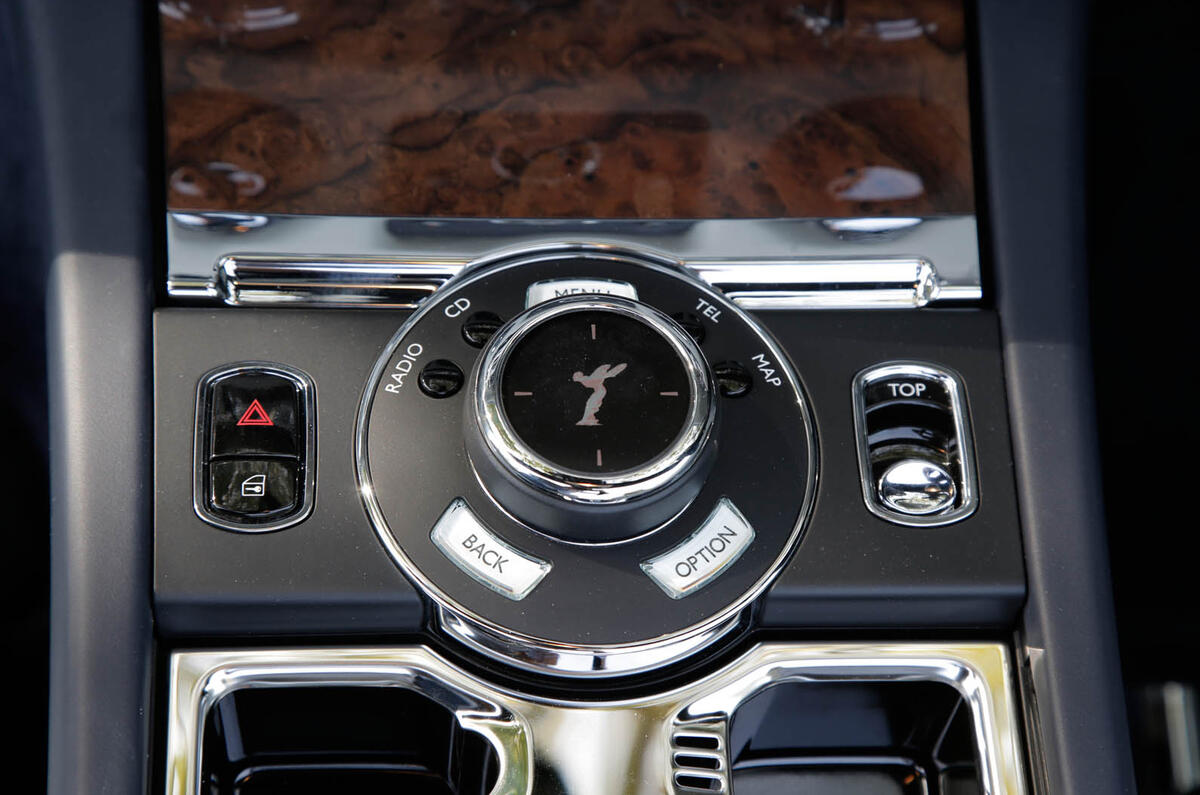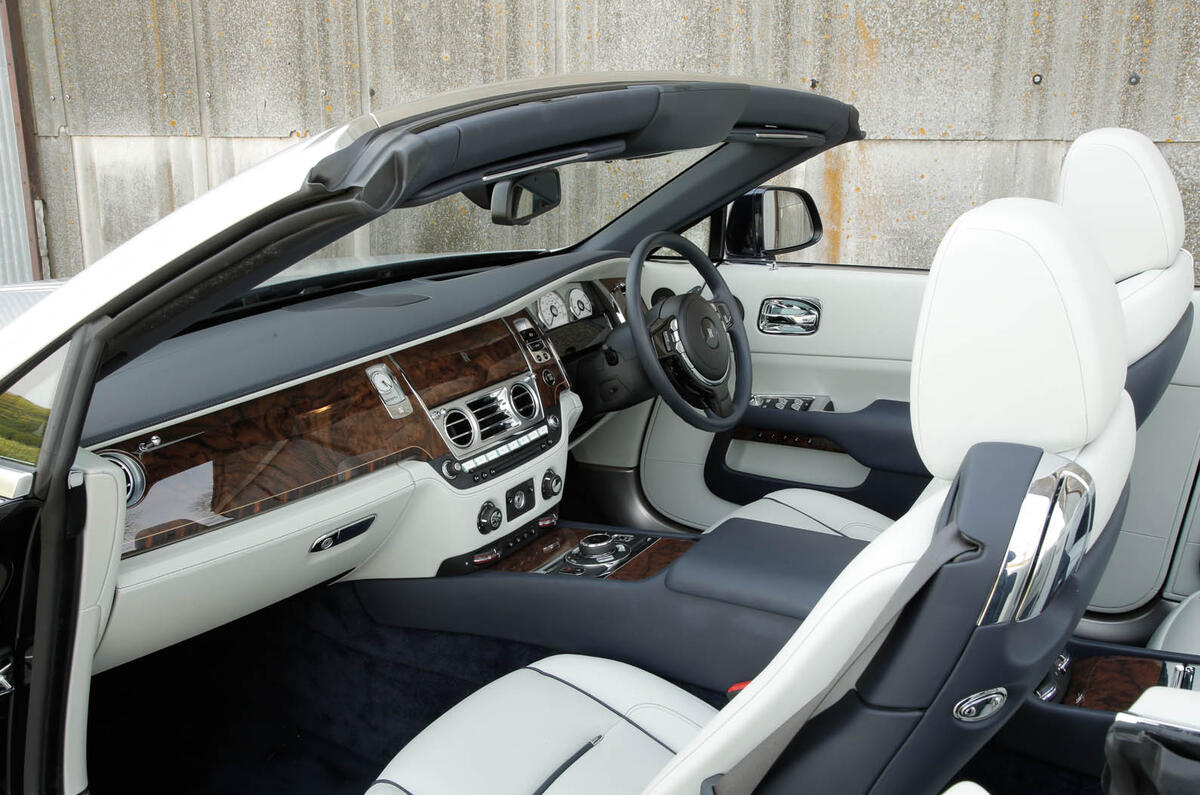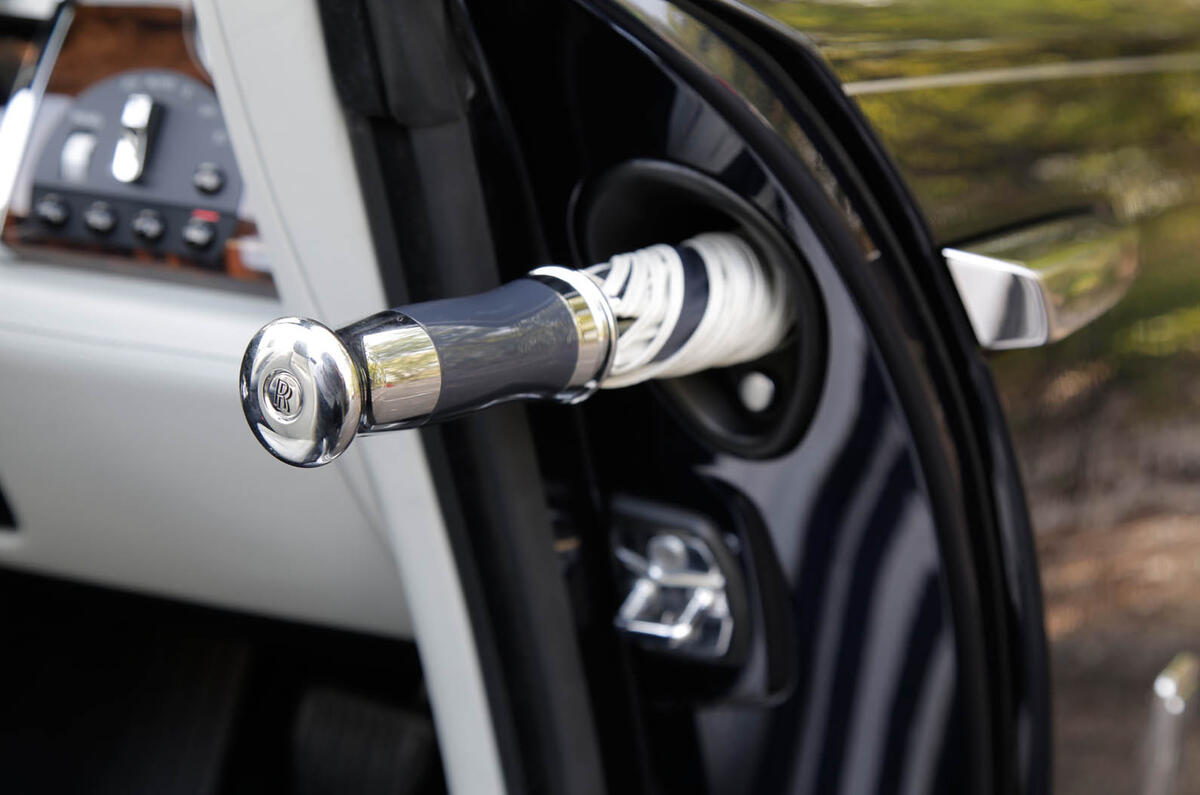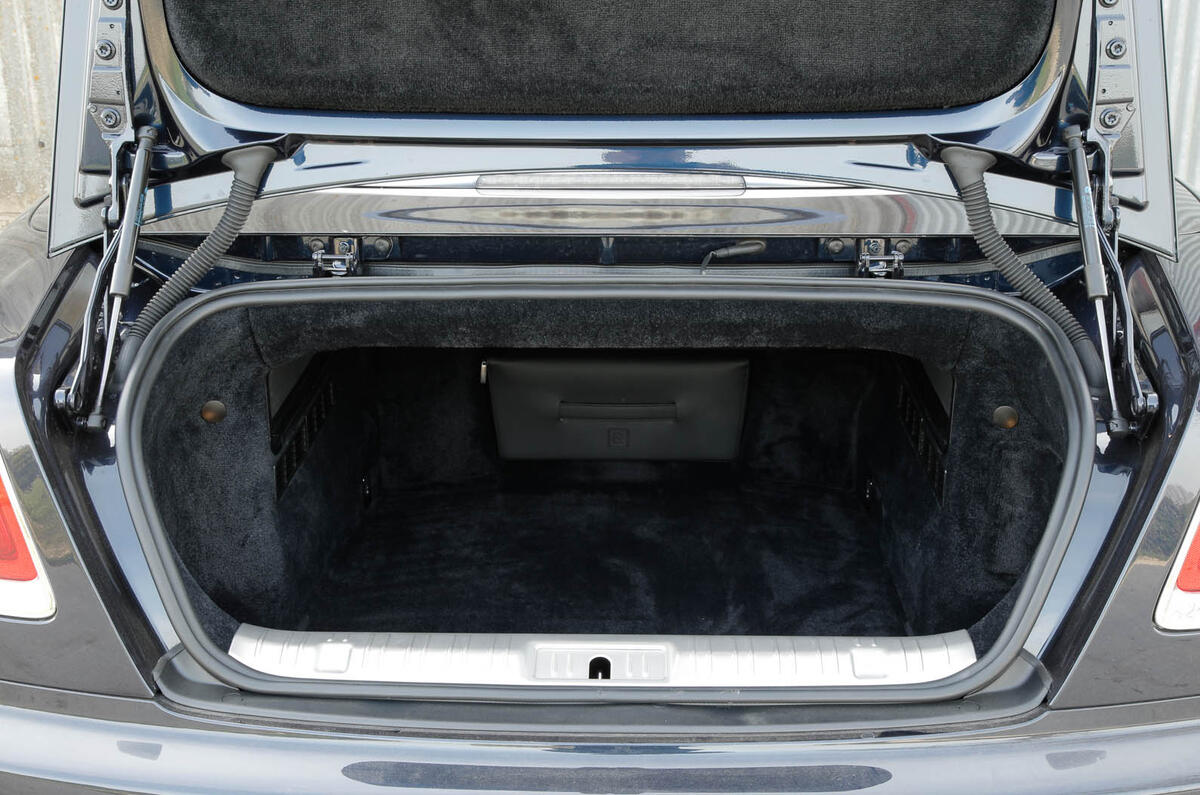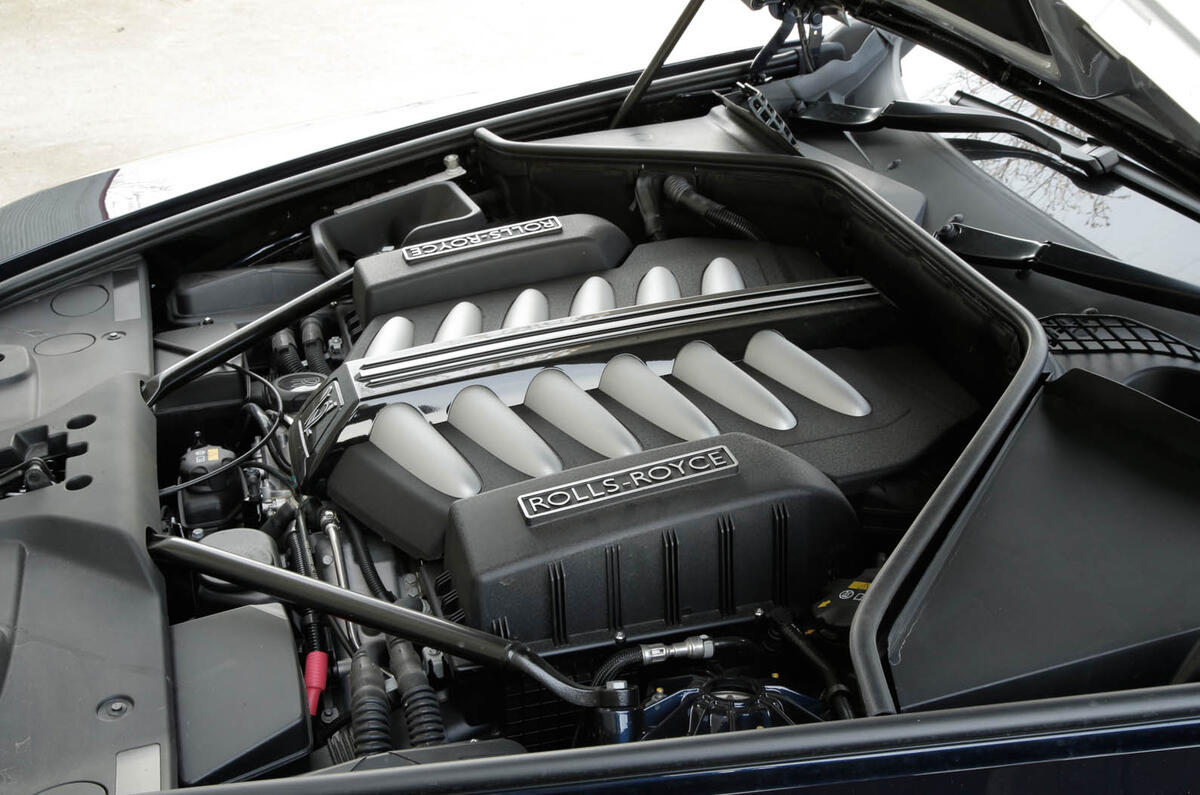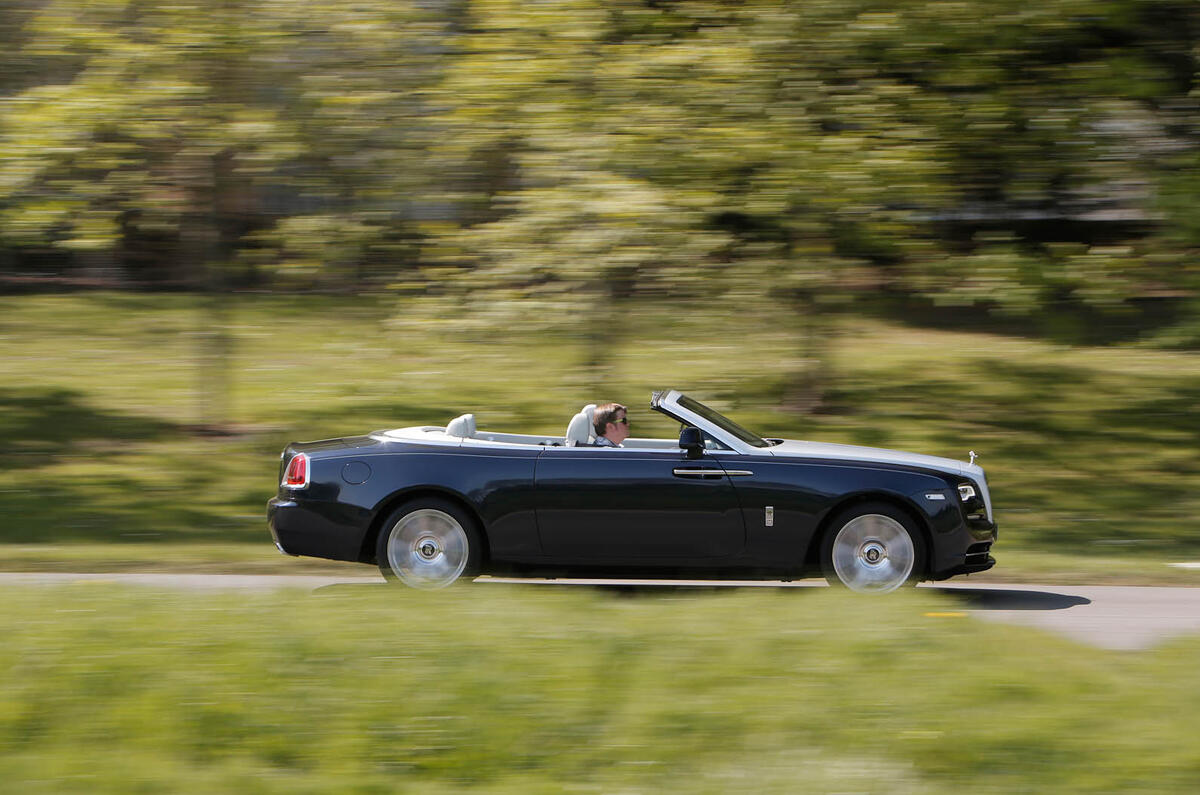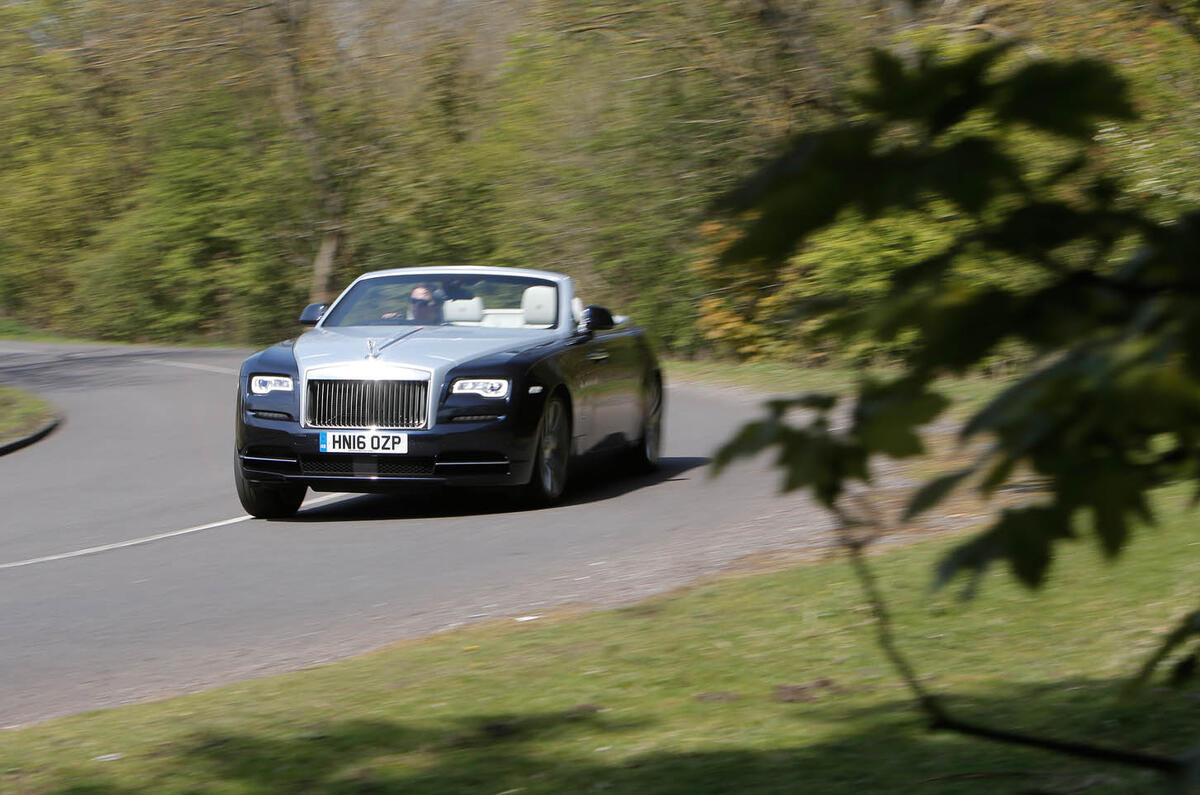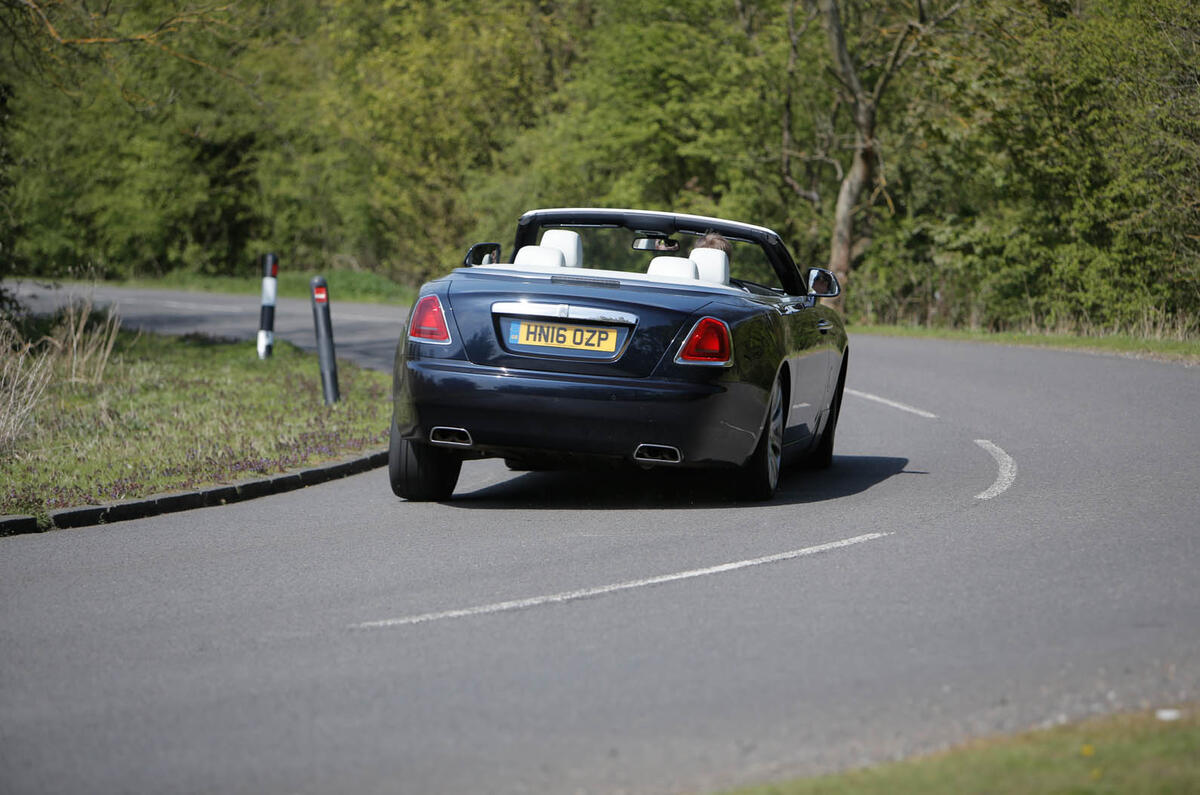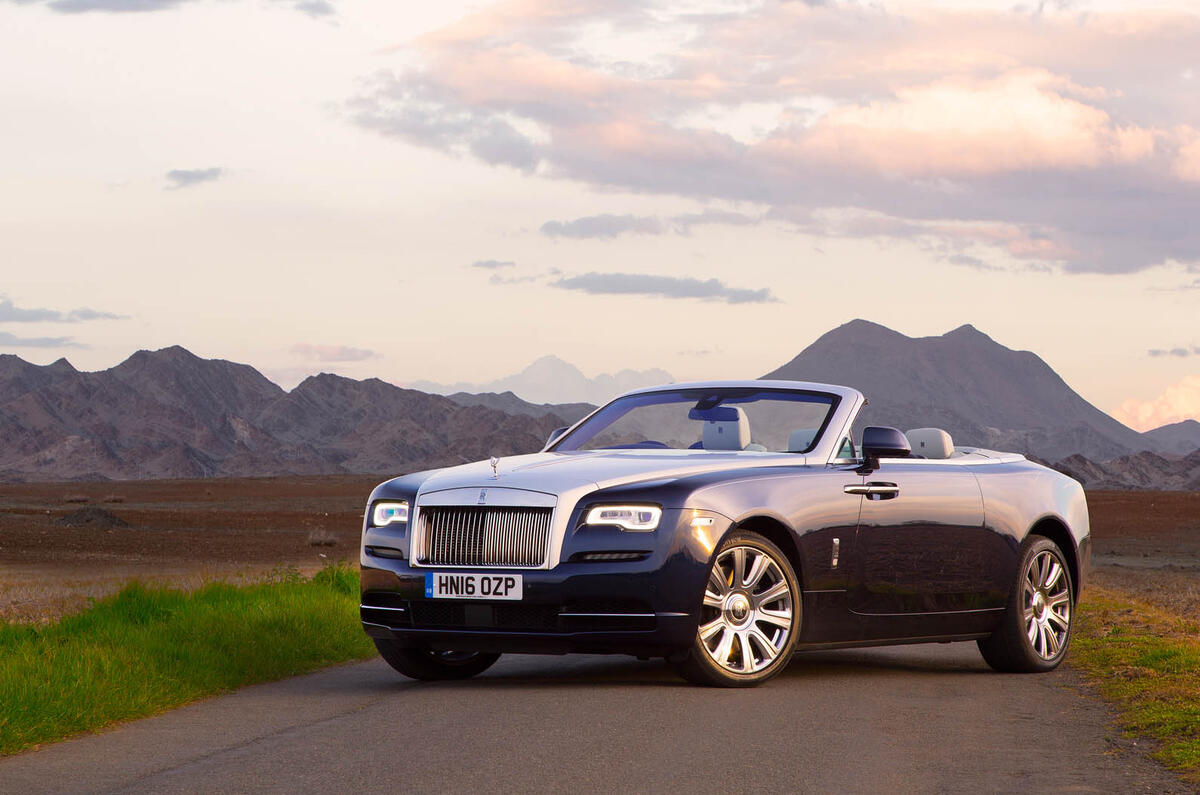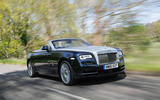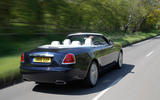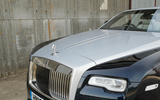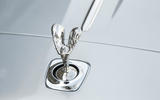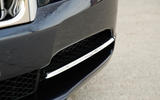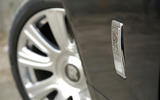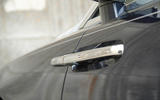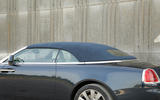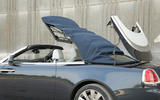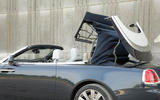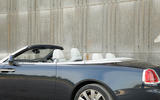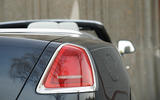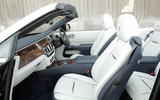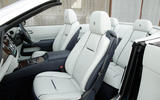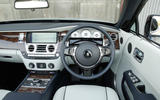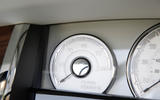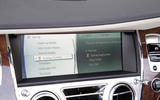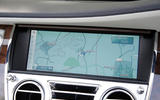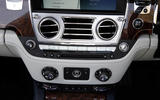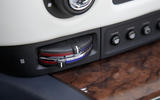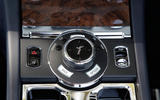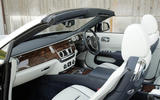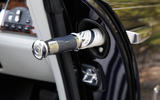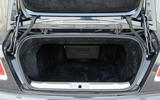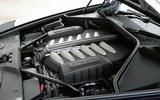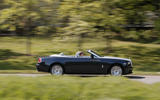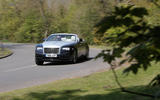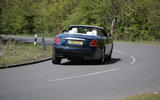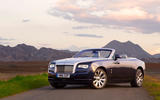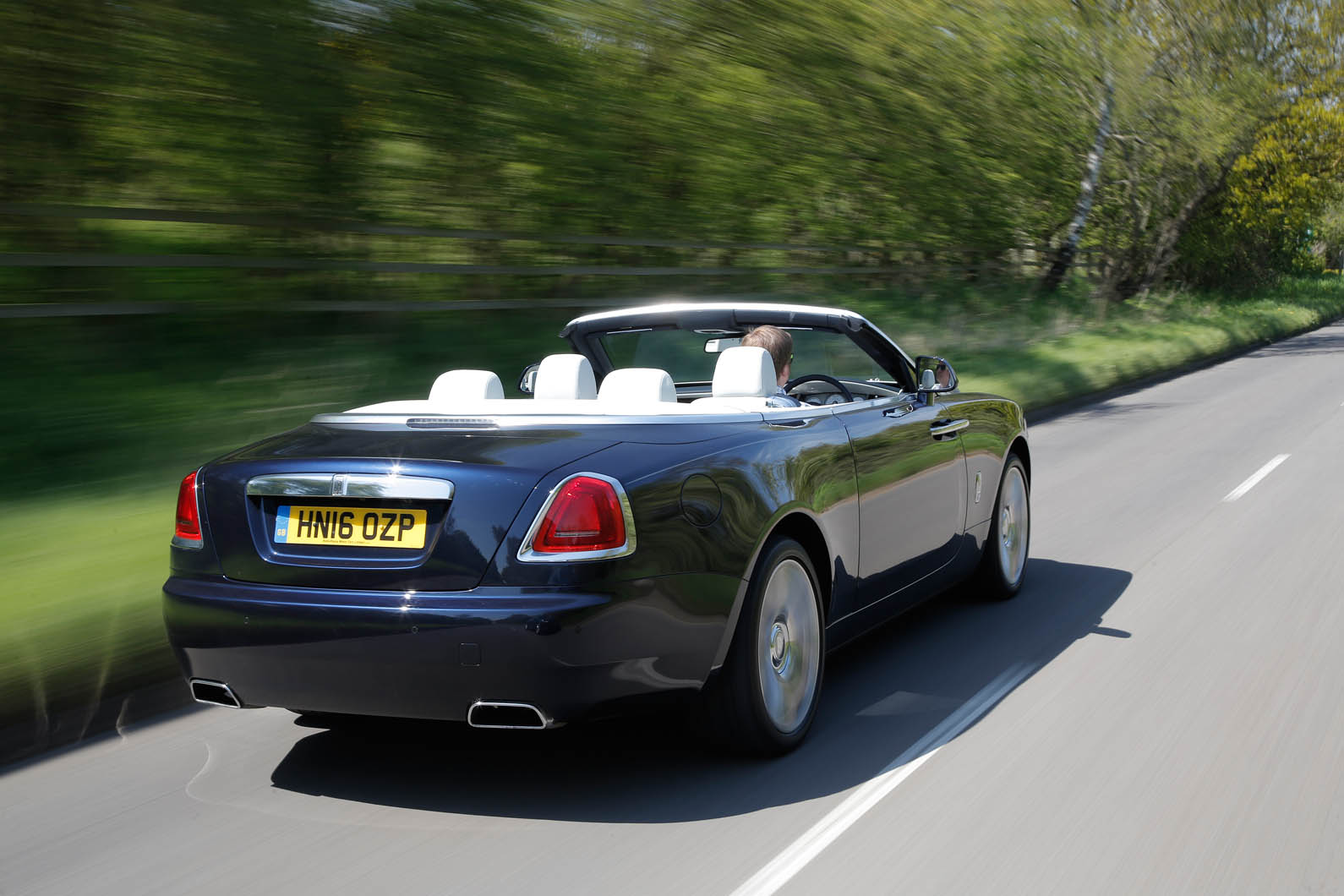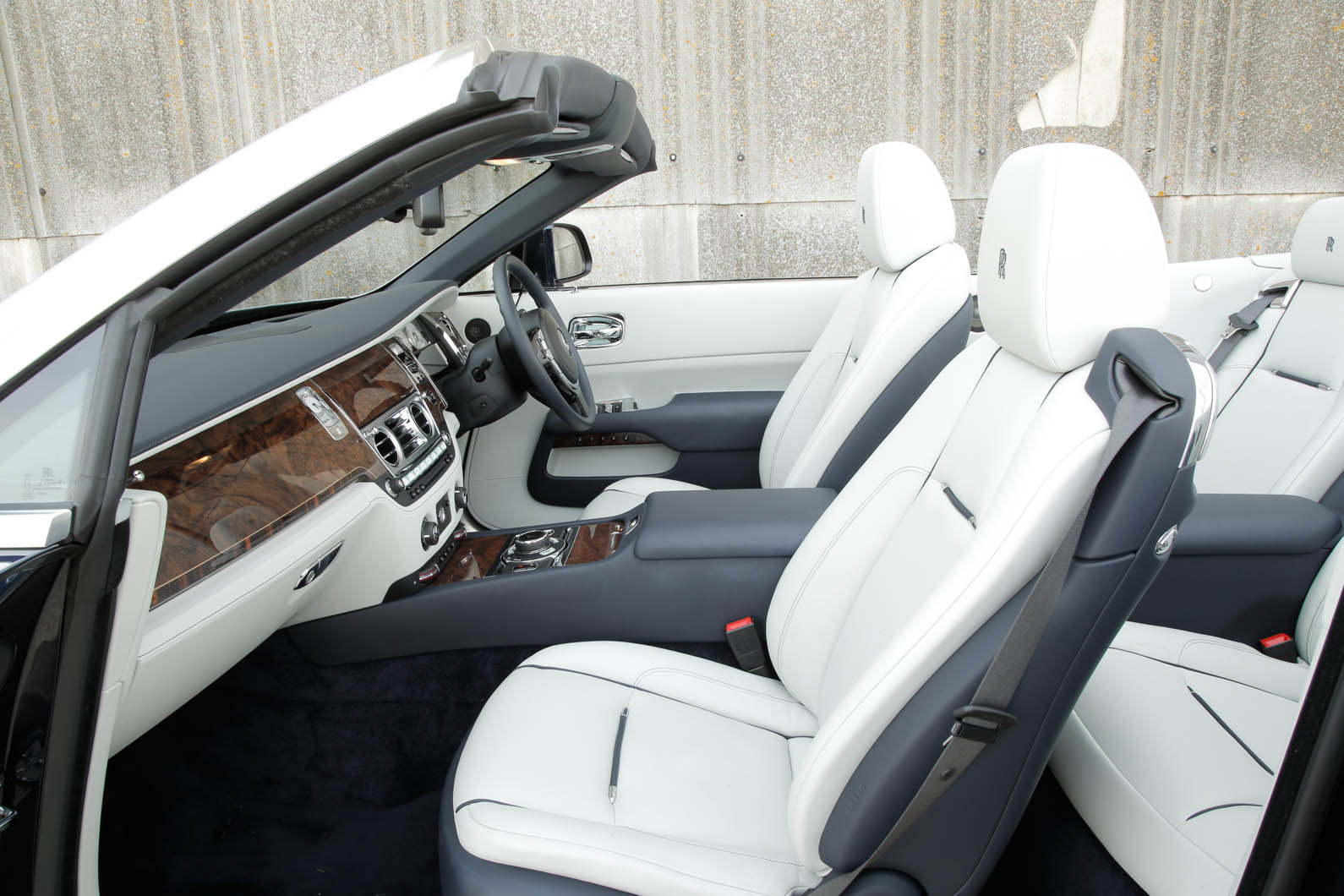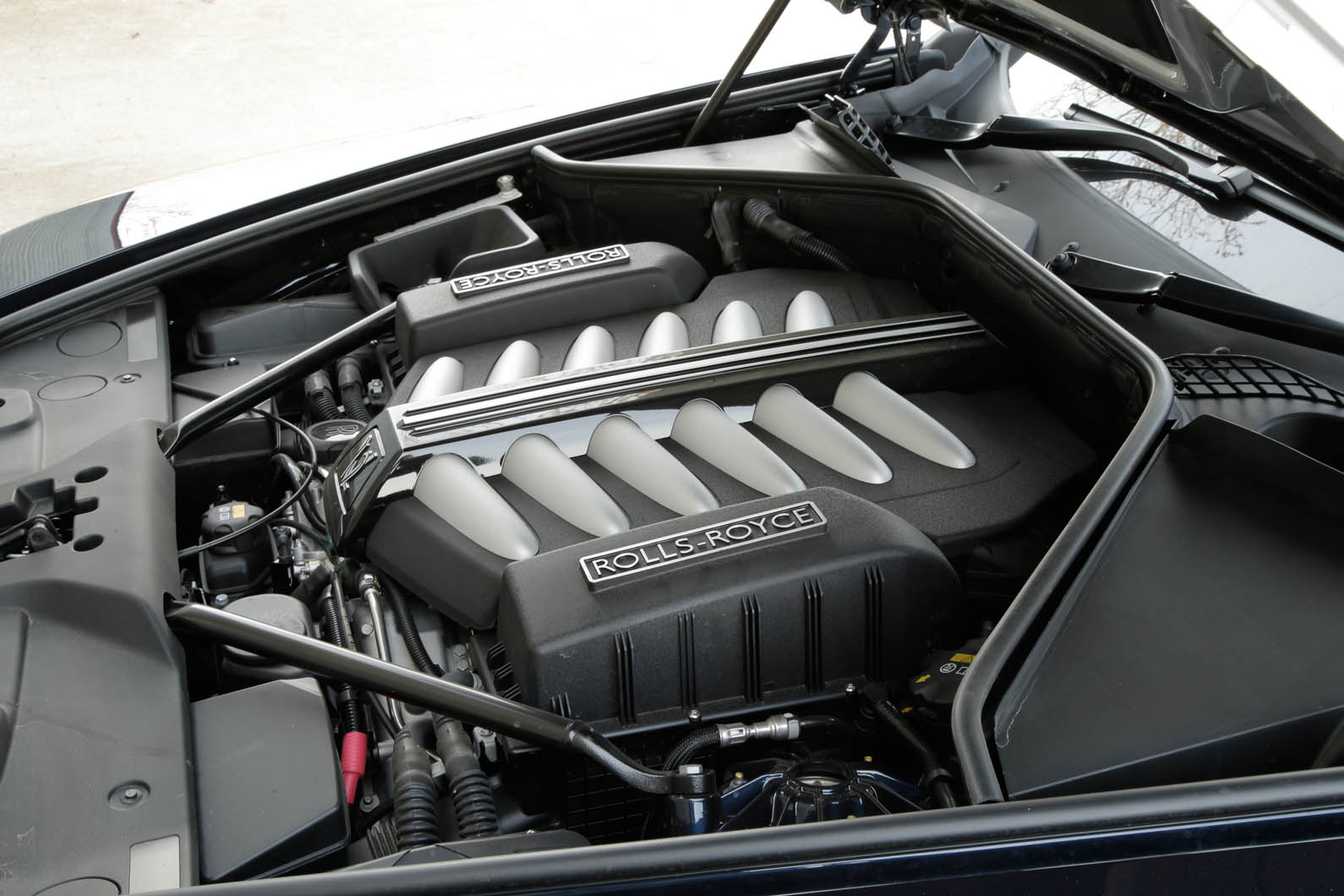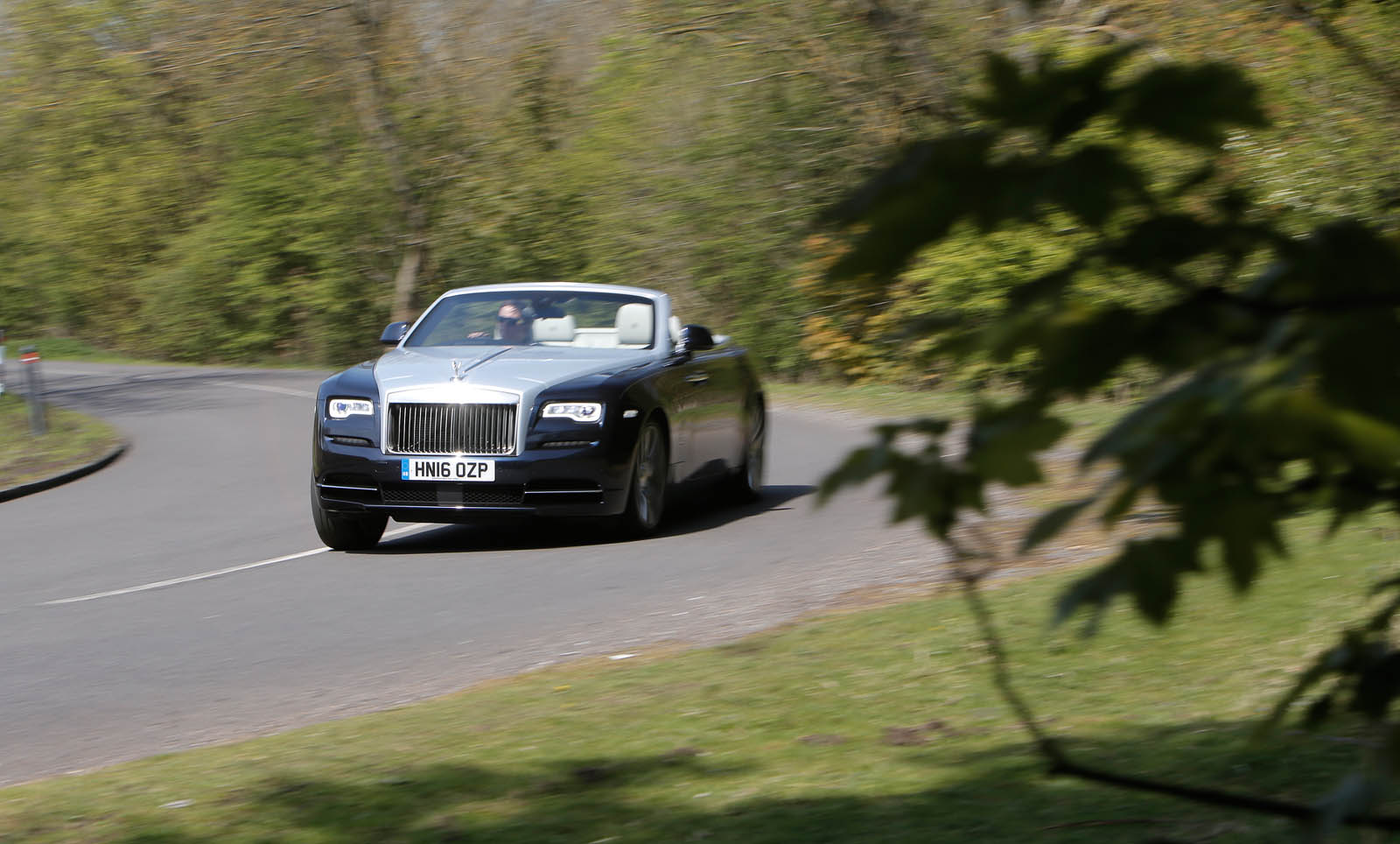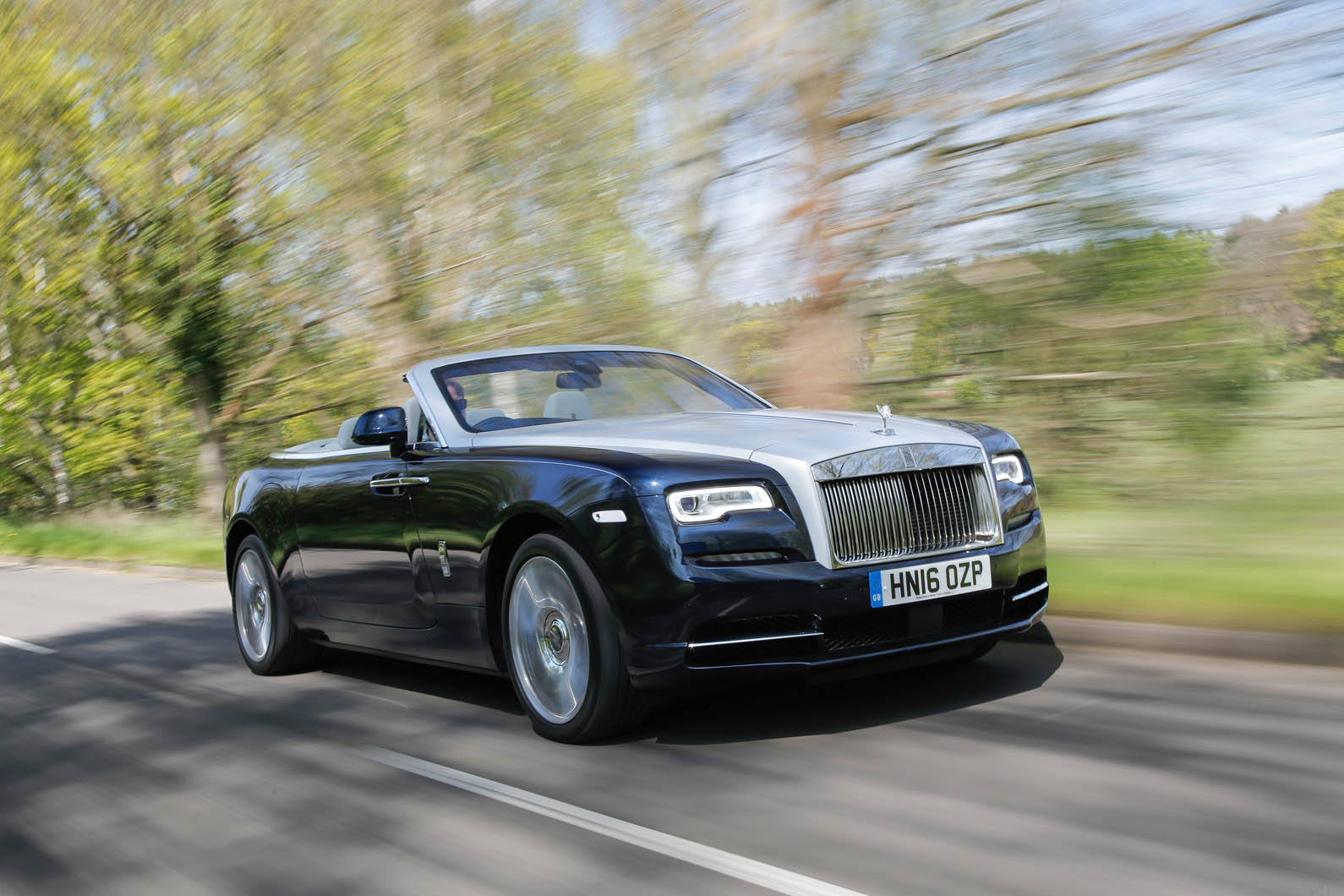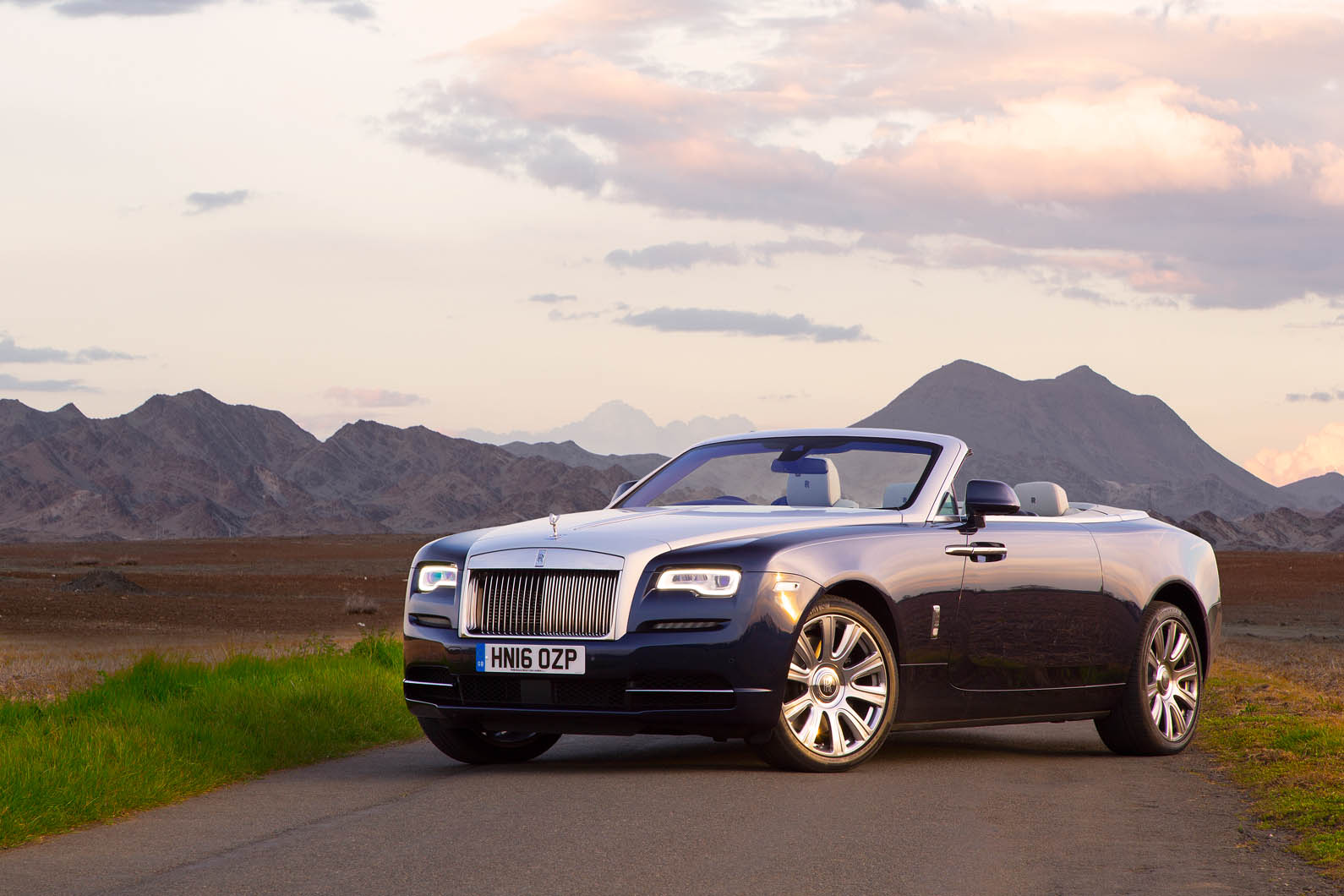In a particularly memorable section of the Rolls-Royce press pack, it suggests “rear passengers do not merely ‘get out’ of a Dawn, but rather stand and disembark as if from a Riva motor launch onto a glamorous private jetty”.
Well, indeed. The coach doors do come into their own in drophead format, as does the car’s prodigious size.
Roof off, and with the front seat tidied away electrically, it is possible to waltz from the car – as long as you’ve taken the step down from the sill into account and stopped on a gravel driveway the breadth of the Thames.
Roof on, and squeezed into a space at Sainsbury’s Local, egress gets a little more inelegant, but in such a circumstance, the average Dawn occupant is likely to be lost or desperate and so in a forgiving mood.
The cabin fills every other requirement made of it with this kind of pomp and circumstance. Thus, the steering wheel is vast, the heater controls are slightly mysterious and the inherited iDrive set-up is dignified.
To draw attention to the quality of the upholstery or the veneers is as unnecessary as pointing out that Johannes Vermeer used expensive paint; suffice to say, what you can see and most of what you can touch is of an exceptional standard – unrivalled anywhere, except perhaps at the equally fastidious Bentley factory.
Like its great rival, inconsistencies occur only where the manufacturer is made to share components (or a version of them) or relent in its ambition to make everything out of something that grew from the ground or was fed on grass.
Plastic, modern wonder that it is, is not as tactile as leather or wood, and as assuredly as your fingers find dry skin, they’ll mark the difference. It’s possible, too, that the dashboard architecture of the distantly related 7 Series might be distinguishable to you beneath the cladding.
But neither condition much blunts the Dawn’s intended impact. This is a four-seat convertible in the truest sense of the description and Rolls claims – with some justification – that no passenger ought to feel short-changed by their allotted pew.
The roof is certainly no impediment to housing those over 6ft tall in the rear, and although there is continuing suspicion around the amount of boot space on offer, the reason for its limitation (the vast fabric awning) is worth the sacrifice.
As always, Rolls-Royce makes a fuss about the ‘discreet’ placement and function of its car’s extraneous multimedia features and, as always, it rings a tiny bit hollow.
The Spirit of Ecstasy Rotary Controller is a reclad BMW iDrive selector, just as the software showing on the screen is a reclad version of the interface hotwired into every BMW model.
The controller isn’t ‘discreetly’ placed anywhere; it’s right under your arm in the centre console, because that’s where every sensible manufacturer puts it.
Of course, like an 18th century ingénue holding a fan, Rolls ensures the unsightly 21st century BMW touchscreen can be hidden from sight by a slab of timber, should you wish. You won’t, though, because it’s useful to see the thing.
Internally, the Dawn’s pseudo-i-Drive is stuffed with all the good stuff, and because it is an iDrive under all the art deco styling, it works pretty much faultlessly.
The real Rolls-Royce touch comes with the stereo, dubbed Bespoke Audio, which uses a microphone to monitor ambient noise and adjust the volume and tone coming from 16 individually tuned speakers. Discreet? Try ‘larger than life’.


